#a few years later he met a girl and her parents outside of church
Explore tagged Tumblr posts
Text
✒️
#so my brother found a box full of documents#from when some semi-distant relative was researching family geneaology#and all my time reading old letters on the loc website came in handy#because it meant i could decipher the handwritten document#of my great-great-grandfather's life story#and read it for everyone as we hung out before family sunday dinner#and the pressure is now on for all the unmarried family members#we've got a legacy to live up to with courtship stories#it seems my great-great-grandfather came to america after a failed engagement#a few years later he met a girl and her parents outside of church#the father hired him to work on his farm#three days later the girl rode with him in a wagon somewhere on some farm business#and she was like 'i've been thinking about you day and night since i first saw you and this is our first chance to speak alone'#and she was like 'we should get married' and he agreed and they shook hands#though they did wait until the next sunday to formalize the engagement#they waited three months to ask for her father's blessing#which they got#they got married two months later#and were married for 35 years#until the morning of the day they were scheduled to take their first out-of-state trip#(he was excited to give her a chance to travel after a life of knowing only home and work)#and he woke up to find her dead beside him#he was writing this not long after and you can tell he was heartbroken#so the marriage was clearly successful#so anyway my one brother was like 'now i feel unsuccessful. i've never found a woman who wanted to marry me after three days'#and my married brother told all us unmarried ones that he expects us to be engaged by next week#clearly it can be done#and anyway it's so interesting to know the details#after only vaguely knowing this guy's name
46 notes
·
View notes
Text



Before the apocalypse
✧ Rose
❧ Knows how to play the guitar, piano, and violin thanks to the many lessons she took as a kid.
❧ She grew up religious, as her family was very heavily involved in the Christian church. Which led to her having to participate as well, singing in the choir nearly every Sunday morning. And she hated every second of it.
❧ One of Rose’s favorite things to do when she was young was play outside with her younger sister on the old, rickety swing-set in their backyard. (If it was summertime, their Dad would bring out the inflatable pool and floaties.)
❧ Her love for painting was inspired by Bob Ross. She used to watch his programs religiously, wanting to be as positive and creative as him.
❧ When the weather would get cooler, Rose would always look forward to when her Dad would take her out to teach her how to track and hunt. It was about the only free time he had to spend with her as he was almost constantly traveling for work.
❧ She loves horror movies more than any other genre. (Especially IT.)
❧ Her first kiss was with a girl. ;)
❧ Since as early as high school, Rose has always been an active weed smoker. (And occasionally a cigarette every now and then she would steal from her Mother.)
❧ Her favorite color has always been a deep red.
❧ Rose didn’t have many friends throughout her life, except for one boy she met her sophomore year. He loved art as much as she did, often finding themselves silently sketching during lunch without saying much of anything. There was a time he did a portrait of her, and it hung proudly in her room for years.
❧ She tried skateboarding once; broke her arm in the process.
❧ Whenever her Dad took a trip to the gas station, she would always come with him as if it were a routine. They would blast 80s rock in his beat up truck, often getting many unhealthy snacks to take back. It was another rare time they could get away and spend time together, away from her Mother’s constant negative energy.
❧ Loves coffee.
❧ Rose’s first day at Law Enforcement Training was no walk in the park. She cried.
❧ But after she successfully took down her first guy a few weeks later, she realized why she had chosen the career in the first place. It felt nice being able to take out the pent up frustration.
❧ 100% a dog person.
✧ Daryl
❧ In elementary school, Daryl was always really good at science. He would often get gold stars from his teachers for all the hard work. And though his love for school didn’t stick, he found himself always being a nature freak.
❧ One year for Christmas, his Mom surprised him with a small lego set that he had been wanting for months. After she passed, he always carried around a single piece in his pocket to keep her close.
❧ When his parents were low on money one summer, he set up his own lemonade stand to sell just on the outskirts of his neighborhood. He only made six dollars, but he was still very proud for putting himself out there.
❧ Daryl was definitely a Mama’s boy.
❧ Secretly loves having his back scratched. (Only if he trusts you of course.)
❧ He often went out alone in the woods to explore ever since he was as young as nine years old. There was a small river just a little ways out past the trees, and he always found himself swimming in it more often than not.
❧ Despite his attempts to deny it, Daryl did in fact attend a middle school dance. But he was far too shy to ask any girl to dance with him, leading to him awkwardly standing in the corner for most of the night.
❧ Stray cats would often explore the area he lived in, and he always took it upon himself to leave out a little food and water underneath his porch just in case.
❧ He absolutely despises tomato sauce.
❧ He got his first bike when he was sixteen years old from a friend of his brothers. He thought it was the coolest thing in the world. Though he ended up spending more money to fix it than what it originally cost, still, that hunk of junk was his pride and joy.
❧ Puzzles were one of his favorite ways to pass the time.
❧ After dropping out of high school, he moved around a lot, traveling to different places with his brother. He found he was most at peace in the mountains.
❧ Daryl always had at least some amount of change in his pocket.
❧ He hates large crowds, but made an exception to go to a Metallica concert.
❧ His first experience with a woman ever was more than awkward. He didn’t know what to do with his hands, and often found himself accidentally kissing with his eyes open.
❧ A secret Dolly Parton fan.
AN ~ Hii! So, I know no one really asked for this, but I decided to do some pre-apocalypse headcanons for Daryl and Rose:) Since the last few chapters I’ve put out have been pretty sad, I hope this makes up for it at least a little bit.
I thought about adding a few extra ones of them as a couple, but I figured this was long enough already. But if you want to see that just let me know and I’ll make more!:)
As always, thank you for all the love xoxox
#daryl dixon#daryl dixon the walking dead#daryl dixon x oc#daryl dixon fanfiction#the walking dead#daryl dixon twd#twd daryl#daryl fanfiction#daryl twd#daryl dixon x original character#daryl dixon headcanon#the walking dead fanfiction#norman reedus#norman reedus fanfiction#twd daryl dixon#twd
34 notes
·
View notes
Text

"Pride goes before destruction, a haughty spirit before a fall." — Proverbs, 16:18.
In which Haksu goes on a date. FEATURING: Kang Haksu, Yi Eunha / Eunmyeong, Lee Taein WORD COUNT: 5.2k WARNINGS / NOTES: Blackmail. Discussions of stalking and other sasaeng behavior. The usual duad when it comes to Haksu.

FEBRUARY 2024
Haksu is a very good son by all measures except one: he’s almost twenty-seven years old and he has no children. This fact is exacerbated every time he returns home for Seollal. He excels at everything else. He helps Mother with her errands—buying groceries, spending time with Oehalmeoni and Oeharabeoji, politely fielding questions from her church friends who coo over him like he's their son as well. On the morning of Seollal, he performs the charye perfectly—following Father's footsteps in circling a shot glass of cheongju three times over a lit stick of incense and placing it on the dining room table in front of a portrait of Father's father, before stepping back and leading his family in two formal bows. The ceremony concludes without a hitch, the same actions repeated twice more for Father's father’s father and Father's father’s father’s father. It's been one of Haksu's responsibilities since he was a teenager. He could do it in his sleep.
It's only later, when they start to eat, that his shortcoming becomes obvious.
“You’re almost thirty. When your father was your age, we had already been married for five years,” Mother begins. “Have you met any girls recently?”
“No,” Haksu mumbles. He doesn’t know why she’d expect anything else. He doesn’t have a normal job and he isn’t in school anymore and besides, he’s an idol. He tries to eat his tteokguk faster and nearly chokes. Mother doesn't seem to notice.
“I met a nice young woman at the service the other day,” she says. She’s said something similar to this for a few weeks now, over the phone every weekend when he calls. Haksu thinks she’s talking about the same person. There can’t be too many different young women joining their church. “She’s around your age, and she doesn’t have a boyfriend.”
Father looks meaningfully at him. “This is an opportunity for you, Haksu. You can’t let it pass you by.”
Haksu has every intention of doing just that. He’s not ready for this. He knows his parents want to be grandparents and he knows he’s their only chance. The thought of fatherhood is far from his current considerations. He has his career to think about first. He can’t get married.
“I know,” he says.
“I spoke to a matchmaker,” Mother adds.
Haksu looks up in alarm, almost snapping his wooden chopsticks in half. No one else at the table seems to be worried. Oeharabeoji is pouring himself his fourth or maybe fifth shot of cheongju. He lost count some time ago.
“He said it’s an auspicious match,” Mother continues. “I’ll give you her phone number. It would be nice for you to meet before you leave again.”
This is all more than he expected. Mother speaks like she’s already made up her mind. He wouldn’t be surprised if they had already planned a wedding date and picked out baby names and started decorating a nursery.
“What do you know about her?” Haksu asks, resigned to his fate. He doesn't have to date her and he doesn't have to marry her and he doesn't have to have kids with her. The least he can do is talk to her.
Father and Mother both brighten almost instantaneously. Haksu knows it's because he's never demonstrated an interest in girls around them before. He couldn't date in high school, because he was in high school. Going out with girls after church services might count as dates, but certainly not as relationships. Then he went to university in Seoul, outside of their jurisdiction. He suspects they're relieved he isn’t gay. He’d feel the same way.
Father goes first. “Her name is Eunha of the Deoksu Yi clan. She's twenty-three.”
Mother interjects. She's barely touched her food. “And she still has no boyfriend or husband. What is she waiting for?”
No one answers her question. Haksu sits in silence and lets his parents talk.
“She moved from Seoul to take care of her grandmother.” Father.
“She was born in the Year of the Snake and she's blood type O.” Mother.
“She knows you’re an idol.” Mother again.
Haksu finally interrupts. “She knows about Fable?”
“I told her,” Mother says, lips pursed. “Your career is unconventional. I wanted to warn her.”
He knows his parents aren’t the most supportive. They tolerate his decisions: they attended his debut showcase and own all of Fable’s albums, but they would have preferred for him to finish university and work a normal job and start a family.
“Luckily, she doesn’t care,” Father says.
“Low standards,” Mother mutters.
Haksu doesn’t get it. Why should he date her, if she has low standards? Does Mother think his standards are too high? Is he the low standard, because he’s twenty-six and single? Should he be settling for someone like her?
He doesn’t think he’s ready to be settling for anyone. He takes another mechanical bite of tteokguk—rapidly cooling off and not nearly as good as it was a few minutes ago—and wonders why no one else is eating.
Mother stands up. “I’ll get her number. You should wish her a happy Seollal.”
Haksu follows, bracing one hand on the back of her chair, silently encouraging her to sit back down again. “Is it in your phone? You can text it to me after breakfast.”
She sits back down, and he breathes out a small sigh of relief.
Then he spends the rest of the meal fervently praying for her to forget all about it. He watches, surreptitiously, from the living room as Mother and Oehalmoni clear the table and wash the dishes. He’s about to slink off back into his bedroom when Mother calls from the kitchen, “Hak-ah! Can you bring me my phone?”
It’s the end for him. He already knows. She’s going to ask him to send Eunha’s number to himself. He tries to think about what it’d be like to have a serious girlfriend—nothing like the faux, nearly parent-supervised relationships he’s had with other girls from his church when he was in high school. But Eunha knows Mother, so maybe it won’t be too different after all. He can’t tell if he likes that or not.
Her phone is lying on the low coffee table in the living room. Ever obedient, Haksu picks it up and brings it into the kitchen, where Mother is still elbow-deep in soapy water.
“I forgot to let Youngmi-ssi know I’m bringing refreshments to choir practice tomorrow night,” Mother says. “Can you let her know in the group chat? It should be one of the most recent messages. You should consider coming too.”
Immensely relieved, Haksu tilts the phone screen toward her face so that it unlocks. He navigates towards her text messages, and types almost verbatim what she said. He can count on one hand the number of choir practices he’s attended since he debuted. It might be good for him to go. As long as Eunha isn’t there, he thinks. He doesn’t bring that part up. “I’ll go,” he says, and Mother smiles at him.
Two more days pass uneventfully without a single mention of Eunha. Haksu thinks he wouldn’t mind if the rest of his life was like that. Or at least the rest of his Seollal vacation. She doesn’t attend choir practice, a fact he’s only too delighted to learn. Mother has yet to give him her phone number, and Haksu certainly isn’t going to remind her.
It’s not until the morning of the day he’s set to leave that Mother brings her up again. His bus back to Seoul leaves in a few hours, and he’s up early to pack. Mother, of course, is awake as well, so she can make sure to send him off with enough food to feed Fable for a week. He doesn’t have much to pack. He spends the time sitting on his bedroom floor, only half-awake, searching the news for his name. His phone vibrates with a text, and to his dismay, he sees that it’s a shared contact from Mother.
Seconds later, she pushes open his bedroom door without knocking or asking. “I didn’t give you Eunha-ssi’s number,” she says, interrupting Haksu’s morning routine. “You should have reminded me.”
He shrugs, not quite cognitive enough to come up with a good excuse. “It slipped my mind too.”
“Be sure to text her before you leave,” she says, a hint of a warning in her voice. Haksu doesn’t know what she’s going to do if he’s in Seoul and he hasn’t texted her.
“I will,” he says.
He doesn’t text her.

JUNE 2024
On the morning of his first seon date, Haksu stares into his closet and puts together a first date outfit: plain white t-shirt under an open jeogori that mimics a jacket, black chinos, Nike Air Force 1s. He didn’t start talking to Eunha until a few weeks ago, after an hour long phone call with Mother where she chewed him out for not texting her so loudly that Byeonghwi overheard every bit of it. Their conversations have been livelier and more engaging than he expected. She knows of Fable, which felt a bit strange to Haksu. She assured him she wanted to know him as a person and not an idol. He thinks he's honest on camera, and the line between Haksu the person and Haksu the idol is so thin it's almost invisible.
He knows he isn't going to marry her, which goes against the purpose of a seon date. It could not be a seon date, but he doesn't know what else to call this almost blind date set up between his mother and her grandmother and a third-party matchmaker. Seon dates are for people who are desperate to find a partner. They're for people who have exhausted all other avenues. They aren't for people whose jobs revolve around being desirable. Haksu is confident he could find a date and then a girlfriend and then a wife if he chose to do so. He's single through a conscious choice.
The only part of the date that he had any input on was the location. In a last-ditch effort to preserve his public image, he insisted on a restaurant with a private room. He isn't dumb—he knows what might happen to Fable if he's caught on a date. Haksu makes it into a familial outing instead. Mother says he worries too much. He pretends he doesn't hear her.
He ensures he's a few minutes late. He sits down with Mother and Oeharabeoji and Oehalmoni in their private room for a few minutes and studies the menu. Then he excuses himself and heads off to his date.
He isn't nervous. They'll chat a bit, then they'll share a meal, and then they'll part ways. Haksu considers himself an expert at letting people down nicely. He doesn't know what she looks like—Eunha had expressed multiple times that she wasn't confident in her appearance, and he didn't push her. He doesn't blame her, because he's her date.
Haksu brazenly pushes the door open, lost in his thoughts about pairing the perfect appetizer, entree, and dessert. He pauses at the sight of a young woman already sitting at the table, buried in her menu. Then she looks up, breaking into what can only be described as the type of smile found in the stalker romance anime series Intak watches from time to time.
He freezes completely, because he knows her. This isn't the lively, quick-witted, enthusiastic Yi Eunha he spoke to over text. Nor is this the polite, reserved, deeply devout young woman Mother met at church. This is someone completely different. This is Eunmyeong, a constant presence at every official and unofficial Fable schedule, the Zenith Entertainment building, their apartment building, and now Haksu’s hometown. He’s written her messages over and over again in their albums, spoken kindly and then much less kindly to her at his schedules, and in moments of morbid curiosity, scrolled through her Twitter, reading tweet after tweet about how much she likes him while studying the pictures of his photocards in front of the back entrance to Fable’s apartment building.
“Haksu-oppa!” she trills. “I'm so happy to see you.”
The door slams shut behind him, trapping the two of them together. Haksu fumbles for the handle behind his back. He doesn’t want to take his eyes off her, like she’s a predator waiting for the moment he looks away or shows weakness to attack. She’s pretty. Almost disarmongly so, the type of beauty that must make people do double takes on the street. It’s only when he looks closer that he sees something off in her large brown eyes and her flawless skin and her too-perfect nose.
“Oppa, you can’t leave. We have to have our date,” Eunmyeong—he doesn’t want to call her Eunha, though he belatedly realizes that it must be her real name—says.
As if in a trance, Haksu finds himself relinquishing the cold metal of the door handle. He takes three mechanical steps across the room and settles into the empty seat. He’s a performer, preparing for the performance of his lifetime.
He smiles thinly. “You surprised me. I didn’t think I’d meet you here.”
Throughout all of their tour, he never saw her a single time: not on any of the flights, not in the front row of the concerts, not in the halls of their hotels, not in a single one of the VIP meet and greets. He was optimistic then, thinking she might have moved on to being a fan of another group, another idol. It would have been a weight off his shoulders, the crowd of delusional young women obsessed with him one person smaller.
Eunmyeong leans forward, placing her elbows on the table and resting her chin on her palms, a twisted reenactment of the flower cup pose. “I missed you so much. All those other bitches saw you on tour. I waited here for you. I would have waited forever.”
The words coming out of her mouth are jarring with her appearance. The planning she did terrifies him. She knows where he lives and who his parents are and where he goes to church. Haksu would have rather had her follow him around the world like everyone else.
“You’ve very dedicated,” he says. He opens his menu so he can look at something other than her, even though he already knows what the restaurant serves. The thought of eating anything makes him want to vomit. He can’t go through with this. “What would you like to eat?”
“Mul naengmyeon. It’s your favorite food.”
It is not his favorite food, but he might have said that at some point in the past five and a half years. He can’t remember.
“Oppa, it feels like you don’t like me very much,” Eunmyeong says, sticking her bottom lip out in a pout.
He backtracks, bending over backwards to please her. “That’s not true.” He swallows his revulsion. “I like you very much.”
She toys with the chopsticks on the table in front of her, manicured pink nails clicking against the white porcelain. “I love you, and I want you to love me.”
“You know everything about me, but I don’t know anything about you,” Haksu says diplomatically. He races through his possible escape routes in his head. Maybe he can communicate it to the waiter somehow. A note, or showing him something on his phone? Or easiest of them all—he can get out of here himself.
“I need to use the bathroom,” he says, the barest hint of an apology in his voice. He's standing and heading for the door before he finishes his sentence.
“Don't go.” Eunmyeong stands almost as quickly as he did, gripping his wrist tightly. Her nails are terrifyingly sharp, so he stops.
“I'm not going anywhere,” he says, wondering if she can feel his heart racing. “I'll be right back. I promise.”
He doesn't know why he's making promises, especially ones he has no intention of keeping.
Eunmyeong refuses to release her grip on his wrist. It's as if she doesn't trust him. “We’ve known each other since you debuted. Don’t pretend you know nothing.”
The only reason why she isn’t one more face in the crowd is because she does things like this. Presumes importance, like she’s someone Haksu should know. Spends her time near Fable’s apartment building. Goes as far as to travel to his hometown. The nausea rises in the back of his throat again, and he has to force himself to swallow it back down.
“I don’t pretend,” he says, aiming for calm and cool and confident. His words are hollow and strained to his own ears.
Eunmyeong finally releases his wrist. “You bite the inside of your lip when you lie. Right here.” She reaches up to brush her fingers against the left side of his bottom lip.
Haksu flinches.
She drops her arm back down to her side and stares at the ground. “Are you afraid of me? It wasn’t supposed to be like this.”
He tries to shove down every chivalrous instinct to comfort her, and then every piece of idol decorum drilled into him that tells him he shouldn’t distress a fan. He can’t lie to her, not now, when she knows his tell—she’s right, he realizes, tonguing the divot in the left side of his bottom lip where his canine slots in perfectly without breaking the skin.
He loses. “You’re right,” he says, and he means it, because it wasn’t supposed to be like this. She was supposed to be a stranger, not one of his stalkers. She was supposed to be the new girl at church, pious and feminine and not completely obsessed with an idol.
“I’ll be your girlfriend,” she says through her crocodile tears, “and you won’t have to be afraid of me anymore.”
“We can’t,” Haksu says, though he doesn’t know why he says “we.”
“Is it because you’re an idol? You should make an exception for me. It’s what your mom wants.”
It is what Mother wants, but Mother doesn’t know who she is. She doesn’t know the hardships and stress he suffered at Eunmyeong’s hands. Mother wants him to get married and have children, but not with a sasaeng, surely. Not at the cost of the health and happiness of her only son.
“It doesn’t matter what she wants,” he says. “I can make my own choices.”
Eunmyeong tilts her head, looking up at him. “You already did. Remember how much we texted?”
He nods, guarded. Every sentence out of her mouth is planned, barbed with saccharine poison. He’s afraid of what she’s going to say next.
“If you don’t agree to date me, I’ll post our texts and say we were already a couple. We started dating a little after your debut. I was the fan, and you were the idol, but you noticed me anyway.”
Lightheaded, Haksu barely recognizes the words he’s saying. “Then why don’t you do it already? Say we’re dating and turn all my fans against me and end my career. Who else would still like me except you?”
“I like that you’re an idol.” She reaches her arms up like she wants to hug him, and he takes another step back. They’re at a restaurant. Where’s any of the waitstaff? “Why would I like you if you were no one?”
“Crazy fucking bitch.” He spits the words at her, and the hurt that flashes through her eyes is gratifying only for a moment before the gravity of his situation returns. Past that, his words don’t seem to faze her.
“I’m looking forward to seeing you in Seoul again,” Eunmyeong says, speaking as if Haksu didn’t say anything. “I have so many ideas for our dates. Oppa, you’ll tell me all your schedules right?”
Haksu composes himself. He probably shouldn’t have called her a bitch, even if she is one. He makes a conscious effort to not bite his lip, and then says, “Of course.” He doesn’t know why she wants him to do that. She’s already known all of them through whatever methods she has.
That seems to satisfy her. She beams, radiant and terrifying all at once. “I’m so happy you agree. I love you so much, Oppa. Call me when you go back to Seoul.”
Then she leaves the room, bouncing past him with a skip in her step, hand lingering on his shoulder for a few seconds too long. Haksu stands frozen, the touch of her fingertips burning through the thin layers of his shirt and jeogori. He can’t understand what she wants from him. He takes a seat again on wobbling legs, staring at the casual disarray of their menus and utensils. What happened to lunch?
He checks his phone, ignoring all the messages from Mother asking about his date. What is he supposed to say to her? This is the worst date he’s ever been on by far, and now he’ll have to go through it over and over again, until she gets bored of him or he reaches the point where blackmail and the threat of a dating scandal mean nothing to him.
He gives Eunmyeong ten minutes to leave. With his stomach twisting in knots, he abandons the private dining room and checks to make sure the door to his family’s room is still closed. Eunmyeong is nowhere in sight, but Haksu feels only slightly relieved.
He takes the bus home alone, texting Daewoong that he needs a ride back to Seoul now, and then a meeting with Taein five minutes ago.

As soon as he arrives in Seoul, Haksu goes to see Taein. All the text messages explaining his situation that he sent during his ride remain unanswered, though Taein read every single one of them. Daewoong was almost sympathetic, but Haksu suspects having to suddenly drive for a six hour round trip offset any goodwill he might have. Haksu doesn’t bother to stop by the dorms first, dragging his suitcase over the uneven sidewalk in front of the Zenith Entertainment building. He opens his phone’s front camera on the ride up the elevator and fixes his hair.
He knocks on the door of Taein’s office and pushes it open without waiting for a response. “What about a restraining order?” he asks, seconds before realizing Taein isn’t the only person in the room. There’s another man there, probably around the same age as Taein, dressed in shade upon shade and layer upon layer of brown. Dark brown shoes, tan pants, green-brown shirt with the sleeves rolled up to his elbows. He flicks an old-fasioned lighter open and closed, dangerously close to Taein’s shelves of papers. He looks familiar, but Haksu isn’t quite sure where he’s seen him before.
“Later, Haksu,” Taein says. He spares only a cursory glance in Haksu’s direction. For once, he seems more tired than anything else.
"Excuse me," Haksu says, shutting the door again.
He drags his suitcase down the stairs to Fable's practice room, though he really should drop it off at the dorms.
Mingeun is the only one there, lying prone on the floor, staring at his phone. He looks up at Haksu and asks, "Wanna go to Japan?"
Then he seems to realize who he's talking to and says, "Never mind. Not you."
"Why not?" Haksu asks, sitting next to Mingeun. He doesn't want to go to Japan, but he still wants to be invited.
"I don't think you wanna go," Mingeun says. He knows Haksu too well. He does another double take. A triple take? “Why are you here? I thought you weren’t coming back yet.”
Haksu ignores him. “Why do you want to go Japan?”
Mingeun sits up and shrugs. “I’m only thinking about it.”
“Intak-hyung would love to go.”
“He would.”
They fall silent. Haksu wonders how much longer Taein will be occupied for. He’s antsy. He has to do something, not just sit here and talk to Mingeun.
Mother texts him with the latest updates on Father’s hospitalization—no changes, still weak since his fall down a flight of stairs three weeks ago—and a question—does he know of anyone who could possibly have a reason to purposely hurt him? Haksu can’t think of anyone at the moment. He can’t think about anyone in any capacity except Eunmyeong. He swipes the notification away. He’ll respond later, after he talks to Taein. He still hasn’t told her about his date, just that he had to go back to Seoul.
When the waiting and the silence becomes unbearable, he stands again. “Can you take my stuff back to the dorm? I have to talk to Taein-nim. It might take a long time.”
Mingeun stares at him curiously and nods. Haksu can practically hear the questions: what happened? Why do you have to talk to Taein? What are you talking about? He doesn’t ask any of them, and for that, Haksu is thankful.

He spends only a few minutes loitering outside of Taein’s office before the mysterious man leaves. He seems to take no notice of Haksu, currently pretending to be one with the wall.
Once Taein’s visitor disappears into the elevator, Haksu barges into his office with a new question. “Who was that?”
Taein looks up from his desk and quickly closes the folder of papers he was looking at. “Someone that doesn’t matter to you. You’ll probably never see him again.”
That, of course, only piques Haksu’s interests. A business partner, maybe. Or a friend? A lover? He dismisses the last thought. Taein had a wife. Multiple wives, in fact. And thinking of him having friends is strange. Of course Taein has to have friends. Haksu can’t see him as anything other than his too-serious CEO. He has a hard time picturing him outside of this office, and he’s seen him outside of this office.
Haksu makes himself comfortable in the cheap plastic chair in front of Taein’s desk. He thinks they make enough money for a new chair. It doesn’t seem to be a priority. “What do you think about a restraining order?” he asks.
“You don’t need a restraining order for a fan,” Taein replies. “That’s ridiculous.”
“She isn’t just a fan,” Haksu complains. “I went on a date with her. She knows where I live. She knows who my parents are. She threatened to end my career if I don’t keep up a relationship with her.” He can’t keep the mounting panic out of his voice.
“That sounds familiar,” Taein says drily. “Why did you agree to the first date?”
“I don’t want to date her. I didn’t know who she was. She’s friends with my mother now.” Each sentence is another terrible fact of his situation, the bars of the cage he’s trapped in. His chest is tight, heart hammering furiously. Distantly, he realizes that it hurts to breathe.
Taein finally seems to take notice. “Calm down, Haksu. Breathe.”
An undeterminable amount of time passes before Haksu starts to feel like himself again.
"I'm sorry," he says, though it doesn't sound quite like him. He rarely apologizes for anything.
"It's an occupational hazard," Taein says, sounding a little more sympathetic.
"No one else has this problem," Haksu says sullenly.
"No one else is the sole center and the face of the group who he insisted he hold that position for years," Taein says, less gentle now. His watch face reflects the spinning colors of the screensaver on his computer.
Haksu picks up on what Taein is insinuating. It isn't his fault. It can't be. There are so many other idols, many of whom are more famous than he is, to his chagrin. He hasn't heard of any of them with sasaengs who befriend their parents to get close to them. He thought that was some sort of unspoken boundary. It was alright to invade the privacy of the idol, the celebrity, the one who recognized the privileges and pitfalls of his position, but not the people closest to him.
"Do you have any underground gang connections?" he asks, still feeling not quite lucid. "Can you get rid of her?"
Taein almost smiles at that. "Who do you think I am?"
Haksu shrugs, slumping down into his seat. This isn't helping. "Then what else can I do?"
"Not much."
He wants to curl up into a ball and go back in time and prevent his past self from ever talking to her. He grasps at straws and presses Taein harder. “You’re certain I can’t get a restraining order? What about laws? Can we prosecute her? Sue her?”
Taein gets a far-off look in his eyes. “You’ve survived this long. She’ll move on soon.”
“She befriended my mother!”
“Unfortunate.”
“She won’t move on,” Haksu says with certainty. He can’t explain how he knows—he just does. “She’s been obsessed with me since I debuted.”
Taein waves a hand through the air, like he can get rid of her in the same way he’d get rid of an annoying fly. “You could always let her try.”
“Try?” Haksu repeats, baffled.
“The same way you did to me. Let her try to ruin your career.”
“It didn’t work with you.” His answer comes out miserably.
Taein lifts his chin. “So what makes you think it would work when she does it?”
Haksu picks at the peeling plastic of his seat. “She said she’d say she’s my girlfriend. She has all the text messages to prove it.” He glares at Taein. “And what would you do? Sit back and ask Andrew-hyung to write another album that everyone except me would promote? Treat me the way you treated Mingeun?”
“Mingeun was a different case. There was nothing I could do to stop the truth from being revealed.”
Haksu knows different. For one, he’s much more popular than Mingeun was when his scandal happened. And another: Mingeun was never the face of Fable. It was always Haksu. He can’t sacrifice the careers of the rest of the group for his individual problem.
He shakes his head. “No. Not that. Something else.”
“I don’t have anything else,” Taein says wearily. “I’m sorry, Haksu.”
Haksu hates how he believes so easily, because it really does seem like Taein has nothing else to offer and it really does seem like he’s sorry. And he has nothing else to ask. He’s always prided himself on his resilience and his determination. Sitting here in Taein’s office, with the prospect of another tense and horrifying date with Eunmyeong on the horizon, he can’t see any way out of it other than through.
He picks up the pieces of himself, putting on the same composed appearance he almost always has in public and resigning himself to his fate. “I’ll be on my way. I didn’t mean to take up so much of your time.” From what he can see in the cracks of Taein’s blinds, the sun is beginning to set. He’s been wound up all day, and the constant tension is beginning to make him feel like he just spent three hours pre-recording for Music Bank.
Taein nods his approval. “I’m sure you’ll get through this, like you’ve survived everything else.”
Though he doesn’t say it out loud, that’s exactly what Haksu is afraid of.
#╰ to be written in ink is to be immortal — [ writing. ]#╰ to be written in ink is to be immortal — [ haksu. ]#ficnetfairy#fictional idol community#idol oc#kpop oc#kpop addition
13 notes
·
View notes
Text
(Valentina's pov)


We've definitely been enjoying our summer here in Brindleton Bay! We try and spend most of our day outside, now that the girls are toddlers we have a lot more freedom as to what we can do. Aria and Ansel have been going with their dad to fish in a nearby lake almost every day since summer started, and whilst they don't come back with a fish everyday, they come back with stories about their fishing adventures that I'm sure they'll look back on with fondness. Whilst we aren't actively doing schoolwork in the summer, we're still learning when we're outside. The kids research the kinds of fish that are local to our area, so they know how to identify anything they might catch. Ever since we got our chickens, we've been learning all the things about them like the differences between the eggs that are laid for us to eat versus the fertilised eggs that hatch into chicks. We've also been learning about the fruits and vegetables that we've been growing, as well as the local plants and animals in the area. We've been debating whether to move to a property that has more land to have more animals, but that's a big undertaking so we're definitely praying on it.
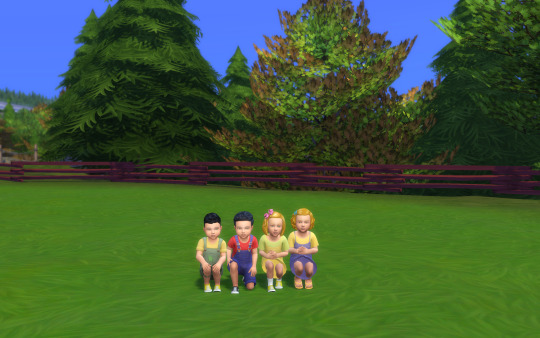
These four are proving to be thick as thieves, there's a year between them and they're determined to put me through my paces. I don't mind it though, I'm taking my time and cherishing all these memories while they're still young. Before I know it they'll be in school, then maybe even college, then getting married and moving out. I'm so thankful for the Lord choosing me to be the mama of these rambunctious kids.
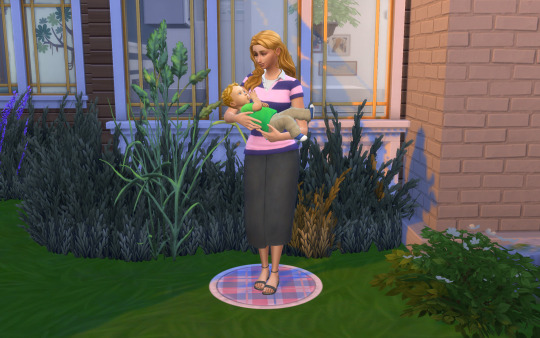
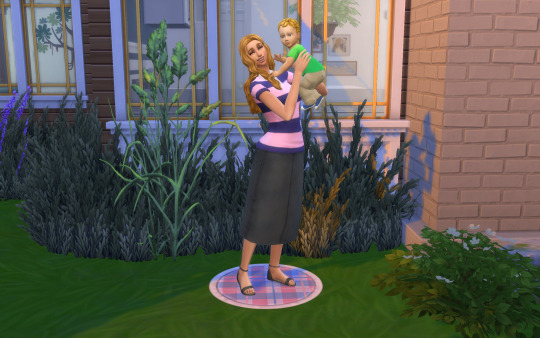
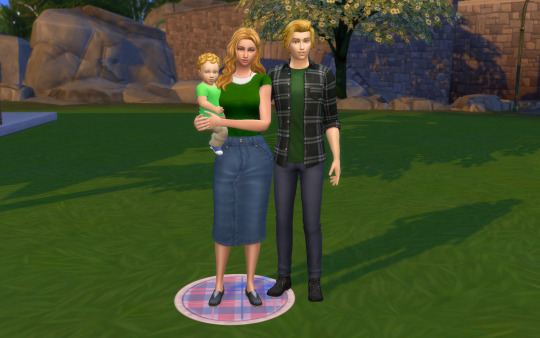
(AN: The kid should really be a toddler cause he's 2 weeks younger then valentina's youngest 2, but lets pretend these are old pictures. Also, I hate that the infant blanket has to appear when they're being posed)
My sister Sabrina and her husband Tucker live further out in the country from us, but we still see them at church and manage to plan to see each other when our schedules align. Though Tucker's family still does their touring music ministry for parts of the year, Tucker and Sabrina have chosen to focus on maintaining the farm and being at home. They've even bought their own home close to the farm, as they wanted their own place for their growing family. Sabrina announced that they're expecting another baby by early next year!

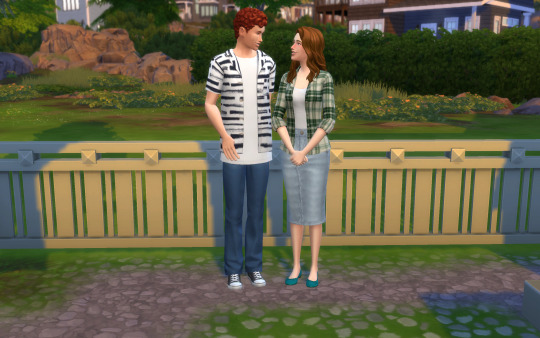
My little brother Zachary is courting! He met Kelsey Parnell (19) last year when he was in Brindleton Bay to visit us, Kelsey lives in a town an hour away from Brindleton Bay but has the same social circles as our aunt Danielle. I guess my aunt is determined to have her nieces and nephews have ties to Brindleton Bay so that there will always be a way to see her, because this is now the 3rd couple she's used her match making skills on (the first being Me and Eric, the second being Sabrina and Tucker). Kelsey spends her time helping her mother at home, or working with the same ministry my aunt sometimes works with. They first met at a christmas bake sale to support an pro-life ministry, and would see each other everytime Zach would visit Brindleton Bay either for work or to see us. My parents were able to meet her parents as well and our families got along great, they agreed that it was okay for the two to get to know each other better in order for a courtship to happen, and recently Zach got the greenlight to ask her to start a courtship. Kelsey is a great girl, we've known her and her family for a few years and I think they'll make a great couple.

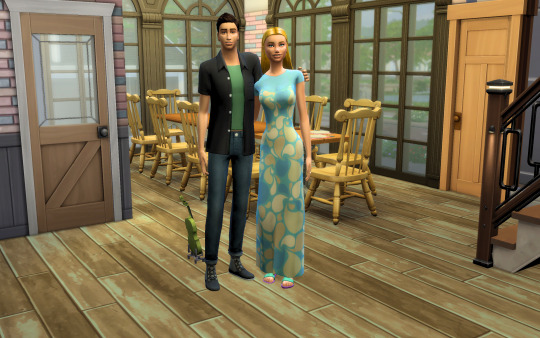
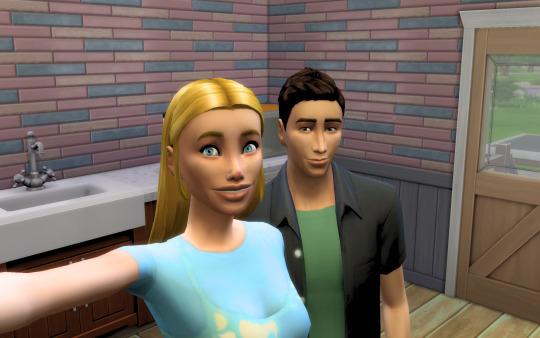
Celeste is also courting! She's in a courtship with a delightful young man named Reid Robbins (25) from Northbury, a town a few hours outside Britechester. They met through mutual friends when she was at a young women's retreat that was a ministry run by his church. She met one of his sisters and they became fast friends, and she later introduced the girls to her family and the rest of the church congregation. These two met and there was a group chat formed where they all got to know each other and challenged each other daily to keep up in their walk with the Lord. Between a few visits to Newcrest, a few visits to Northbury, and some group trips added into the mix, Reid had started to pray to the Lord about Celeste (what he didn't know is that she'd also started praying about him!). After discussing the fact with his parents, they contacted our parents and after both sides approved, he made his way to my parents house in Newcrest and officially asked her! Though she was excited, Celeste was slightly apprehensive at the beginning because she is slightly older than him (her being 27 and him being 25), but my sisters and I reassured her that if she felt the Lord leading her in that direction - then to follow where she's being led. Now she's happier than ever before, she's already started dreaming about what their wedding will look like!
#fundie sims#fundiesims#quiverfull sims#collins family#quiver full sims#modest sims#sims 4 legacy#collins legacy#homeschool sims#sims 4 courtship#sims 4 pregnancy#gen 3#Eric and Valentina#tucker and sabrina#Zachary and Kelsey#Reid and Celeste#gen 4#post#eric and valentinas kids are actually always outside#they wander everywhere#theres always one in the pen with the chickens#sabrina and tucker are shooting out children#both their families are very much the 'have all the babies' type#theyre also the 'marry young' crowd considering the courtships#celeste is giving allison bontrager energy but shes not got the outgoing personality#its mostly the younger man tbh#but at this point shes just happy to be in a relationship#three siblings on either side of her are all married with the last two still in highschool so she was def feeling the pressure
9 notes
·
View notes
Text
𝐼𝑉 - 𝑇ℎ𝑒 𝐶𝑎𝑟𝑒𝑡𝑎𝑘𝑒𝑟𝑠
•─────⋅☾•☽⋅─────•
The Caretakers of the Deaf Wood Cathedral were a practical sort. The first was a quiet man, tall and firm, who believed in hard work. He liked a quiet life, and he was grateful for the things he had. When he moved to the wood, it was just called ‘The Forest,’ many, many years before it became The Deaf Wood.
He was looking for a place to settle down without the bustle of the kingdoms cropping up on either side, growing larger and louder every day. He’d stumbled upon the Cathedral by chance, and when they offered him a place among them, he had replied that he couldn’t possibly stay without work. Nothing worth anything ever came if you didn’t work for it, and so they let him on as the groundskeeper.
Mr. and Mrs. Bishop packed their home and traded the city for the quiet church walls. It was only a year later that they had their first child, a baby boy. As the years passed and they worked, they had only two more children, beautiful baby girls in addition to their son, all of whom were raised in the forest.
As time passed, the girls both met men that they loved, and married, and they left the Cathedral. Eventually, the Bishops became old, and the work started to weigh on their bones. Their son decided to stay, and he took on the task of groundskeeper. He helped their parents in their old age, and he kept up the work around the church, making sure everything was tidy and kept.
One day, on a trip to the town for supplies, Mr. Bishop (as he was now of age to be called such) met a beautiful girl, and he was immediately taken with her. Each time he went to town, he met with her, and they began a slow, warm sort of romance built on conversation and time spent together. Eventually, he asked for her hand.
“I love you, dearest,” He told her, “And it would make me the most lucky man on the Earth if you would be my wife. I know it may be a lot to ask, but I would like you to come live with me in the wood. We’ll spend our days in warm Cathedral walls, and you will want for nothing.”
The woman agreed to give the quiet, simple life a chance, saying, “I love you past the stars, my love, and for you I will come to see this church you speak of, but I must see it before I agree.”
Deciding this was a perfectly reasonable request, Mr. Bishop took her to the Cathedral and showed her all its wonders, from the dancing ghosts to the beautiful tower they would live in if she agreed to stay. After a few weeks deliberation, and a few more visits, the woman became the next Mrs. Bishop, and they too had children of their own.
The cycle continued, even after The Forest became The Deaf Wood. The daughters always went, and the first son always stayed, inevitably becoming the next groundskeeper. The endless circle spins round and round all the way up until present time, with one young Mr. Bishop (Iain Bishop, as it were, named after a Great, Great Uncle who had left to become a beekeeper in a beautiful green grove in the woods.) taking the mantle as groundskeeper.
The townsfolk now have stories of the groundskeepers, and it’s partially true, partially tall tale. After the wood became darker and stranger, time stretched around the Cathedral, meshing into the gift Lady Glass had bestowed on the inhabitants, and making the world there moved just a touch slower.
The people outside the forest whisper under their breath about the immortal groundskeeper of the strange, tall church who worships a long forgotten god, a mixture of similar familial features and a distorted sense of time making the rumors resurge every time a Bishop comes into town for supplies. Despite them, the wheel keeps turning, maybe slowing, but never ceasing.
•─────⋅☾•☽⋅─────•
0 notes
Text


Name: Calina Duval Faceclaim: Greta Onieogou Gender/Pronouns: cis female, she/her Age: 30 years old Birthday: July 15th, 1993 Birthplace: Philadelphia, PA Sexuality: Bisexual Relationship Status: Single Occupation: Bartender and co-owner at The Tipsy Whale Neighborhood: Montara Positive: Adventurous, Outgoing, Determined Negative: Jealous, Naïve, Overthinking, Stubborn
Calina Duval was a miracle baby. Leylah and Jeremiah Duval had been married fresh out of high school but it took them over six years to get pregnant. They were in the process of looking to adopt when Leylah missed her period and the at home test confirmed that she was pregnant. The next nine months seemed to go by quicker than either of the pair expected and before they knew it, their daughter was born weighing in at seven pounds. She was a good baby; hardly fussed and all smiles around anybody that gave her attention.
From the time that Calina was young, she was taught that appearances meant everything and she never left the house without her hair done and her outfit absolutely wrinkle free and straight as can be. It was something that her mother instilled in her and she always made sure that she was ready at any given time of the day to go out even if she knew beforehand that she wasn’t going to do anything. Her mother was the prime example of a housewife and someone that Calina looked up to.
Growing up in a Christian home, Calina followed strict rules when it came to everything. She had a set schedule and it was something that was rarely missed. Every morning she would wake up, take a shower and eat breakfast before getting ready and going to school. After school, she was enrolled into dance classes and would attend those five days a week. After dance, she came home to do her homework and help her mother with dinner before she was promptly in bed at 9pm every night without fail. School, dance, and church was essentially what Calina’s life consisted of and she wouldn’t have had it any other way. In fact, she liked sticking to a set schedule and staying with it because it showed her discipline and resistance.
But as she got older, her parents become increasingly overbearing and treated her as if she wasn’t capable of making her own decisions. So when she could, she would sneak out and party until she couldn’t remember anything. She always made sure that she was home before her parents knew what was going on and kept up with appearances when she was needed. It wasn’t as if she didn’t appreciate her parents but they were set in their ways and Calina wanted to be free. And when she was eighteen, she met a boy with a band and everything changed. He was a breath of fresh air and it was almost instantaneously that she knew he was going to be in her life for good. She begged him to stay in Philly instead of going to the next town and maybe she was being selfish when asking but at the time she hadn’t ever wanted someone as much as she did him.
The next few years were something out of a movie for Calina and she had fallen head over heels for Matty. He had a future planned and she wanted nothing more than to be a part of it. She was sick of being what her parents wanted and she wanted to run away with him so she had her bags packed and ready to go but weeks before she started to feel sick and after going to the doctors she found out that she was two months pregnant. Her parents found out before she had even made it home and threw a fit as it wasn’t a good image to be pregnant and not married. They kept her locked away from the world and in turn she had to break it off with Matty - a decision that she regrets fo this day - but he was going places. He had a future and she didn’t so she let him go despite wanting nothing more than for him to stay.
Seven months later and their baby girl was born. Calina’s parents told everyone that her daughter was actually theirs and for so long she told the lie. Everyone on the outside knew the lie but thankfully her and her daughter had the best of bonds. They grew up together and after years of feeling inadequate in being a mother compared to what her own mother had accomplished at her age, she packed her bags and headed to Half Moon Bay to stay with her aunt. Her aunt was estranged from the family due to her wild nature and her and Calina were more alike than her and her own mother. Her aunt owns The Tipsy Whale and put Calina as a co owner of the business long before she even knew about it. She’s not sure what this life is going to be but she’s determined for it to be a good one for her daughters sake.
1 note
·
View note
Text
Anonymous asked: I have always appreciated your thoughtful views on the defence of the British monarchy, and as a university historian it’s reassuring to see someone using history to make invalubale insights to a controversial institution. I wonder what are your own thoughts on the passing of Prince Philip and what his legacy might be? Was he a gaffe prone racist and a liability to the Queen?
I know you kindly got in touch and identified yourself when you felt I was ignoring your question. I’m glad we cleared that up via DM. The truth is as I said and I’m saying here is that I had to let some time pass before I felt I could reasonably answer this question. Simply because - as you know as someone who teaches history at university - distance is good to make a sober appraisal rather than knee jerk in the moment judgements.
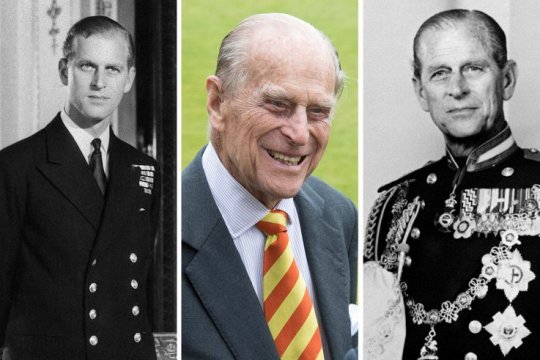
Contrary to what some might think I’m not really a fan girl when it comes to the royal family. I don’t religiously follow their every movement or utterance especially as I live in Paris and therefore I don’t really care about tabloid tittle tattle. I only get to hear of anything to do with the royal family when I speak to my parents or my great aunts and uncles for whom the subject is closer to their heart because of the services my family has rendered over past generations to the monarchy and the older (and dying) tight knit social circles they travel in.
Like Walter Bagehot, I’m more interested in the monarchy as an institution and its constitutional place within the historical, social, and political fabric of Britain and its continued delicate stabilising importance to that effect. It was Walter Bagehot, the great constitutional scholar and editor the Economist magazine, who said, “The mystic reverence, the religious allegiance, which are essential to a true monarchy, are imaginative sentiments that no legislature can manufacture in any people.” In his view, a politically-inactive monarchy served the best interests of the United Kingdom; by abstaining from direct rule, the monarch levitated above the political fray with dignity, and remained a respected personage to whom all subjects could look to as a guiding light.
Even as a staunch monarchist I freely confess that there has always been this odd nature of the relationship between hereditary monarchy and a society increasingly ambivalent about the institution. To paraphrase Bagehot again, there has been too much ‘daylight’ shone onto the ‘magic’ of the monarchy because we are obsessed with personalities as celebrities.
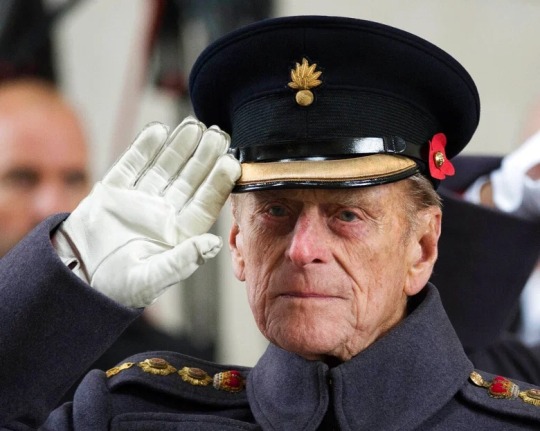
Having said that I did feel saddened by the passing of Prince Philip, the Duke of Edinburgh. After the Queen, he was my favourite royal. Anne, Princess Royal, would come next because she is very much like her father in temperament, humour, and character, so unlike her other brothers.
I have met the late Prince Philip when I was serving in the army in a few regimental meet-and-greet situations - which as you may know is pretty normal given that members of the royal family serve as honorary colonel-in-chiefs (patrons in effect) of all the British army regiments and corps.I also saw him at one or two social events such the annual charitable Royal Caledonian Ball (he’s an expert scottish reeler) and the Guards Polo Club where my older brothers played.
I’ll will freely confess that he was the one royal I could come close to identify with because his personal biography resonated with me a great deal.
Let’s be honest, the core Windsor family members, born to privilege, are conditioned and raised to be dull. Perhaps that’s a a tad harsh. I would prefer the term ‘anonymously self-effacing’, just another way of saying ‘for God’s sake don’t draw attention to yourself by saying or doing anything even mildly scandalous or political lest it invites public opprobrium and scrutiny’. The Queen magnificently succeeds in this but the others from Charles down just haven’t (with the exception of Princess Anne).
However, many people forget this obvious fact that it’s the incoming husbands and wives who marry into the Windsor family who are relied upon to bring colour and even liven things up a little. And long before Kate Middleton, Meghan Markle (very briefly), or Lady Diana Spencer, were the stars of ‘The Firm’- a phrase first coined by King George VI, Queen Elizabeth II's father who ruled from 1936 to 1952, who was thought to have wryly said, "British royals are 'not a family, we're a firm,” - it was Prince Philip who really livened things up and made the greater impact on the monarchy than any of them in the long term.
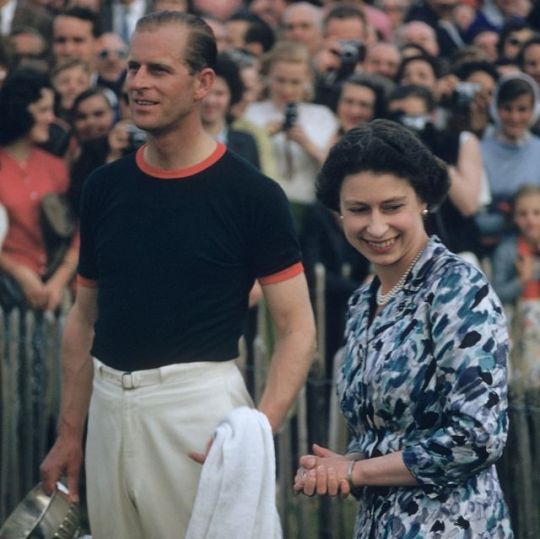
Prince Philip’s passing belied the truth of a far more complex individual: a destitute and penniless refugee Greek-Danish prince with a heart breaking backstory that could have been penned by any 19th Century novelist, and also eagle eyed reformer who tried to drag the royal family into the 20th century. At the core of the man - lost scion of a lost European royal dynasty, a courageous war veteran, and Queen’s consort - were values in which he attempted to transform and yet maintain much older inherited traditions and attitudes. Due to his great longevity, Philip’s life came to span a period of social change that is almost unprecedented, and almost no one in history viewed such a transformation from the front row.
Prince Philip would seem to represent in an acute form the best of the values of that era, which in many ways jar with today’s. He had fought with great courage in the war as a dashing young naval officer; he was regularly rude to foreigners, which was obviously a bonus to all Brits. He liked to ride and sail and shoot things. He was unsentimental almost to a comic degree, which felt reassuring at a time when a new-found emotional incontinence made many feel uncomfortable. Outrageous to some but endearing to others, he was the sort of man you’d want to go for a pint with, perhaps the ultimate compliment that an Englishman can pay to another Englishman. This has its own delicious irony as he wasn’t really an Englishman.
There are 4 takeways I would suggest in my appraisal of Prince Philip that stand out for me. So let me go through each one.
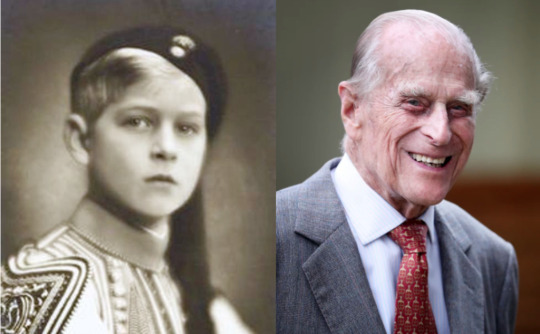
1. Prince Philip’s Internationalism
It may seem odd for me to say that Prince Philip wasn’t English but he wasn’t an Englishman in any real sense. He was a wretch of the world - stateless, homeless, and penniless. That the Prince of Nowhere became the British Monarchy’s figurehead was more than fitting for a great age of migration and transition in which the Royal Family survived and even flourished. That he was able to transform himself into the quintessential Englishman is testimony not just to his personal determination but also to the powerful cultural pull of Britishness.
He was born on a kitchen table in Corfu in June 1921. A year later in 1922, Philip, as the the great-great-grandson of Queen Victoria and nephew of Constantine I of Greece, was forced to flee with his family after the abdication of Constantine. He grew up outside Paris speaking French; ethnically he was mostly German although he considered himself Danish, his family originating from the Schleswig border region. He was in effect, despite his demeanour of Royal Navy officer briskness, a citizen of nowhere in an age of movement. From a very young age he was a stateless person, nationally homeless. Indeed, Philip was an outsider in a way that even Meghan Markle could never be; at his wedding in 1947, his three surviving sisters and two brothers-in-law were not permitted to attend because they were literally Britain’s enemies, having fought for the Germans. A third brother-in-law had even been in the SS, working directly for Himmler, but had been killed in the conflict.
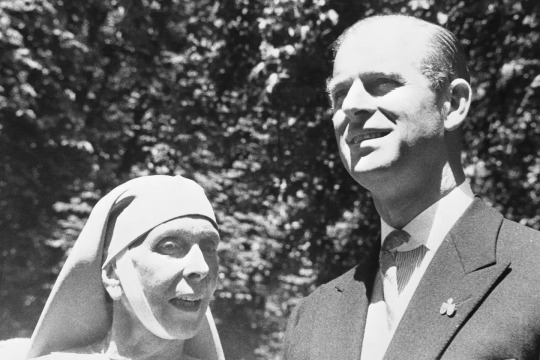
Even his religion was slightly exotic. He was Greek Orthodox until he converted to Anglicanism on marrying Elizabeth - what with his wife due to become supreme head of the Church and everything - but his ties with eastern Christianity remained. His great-aunts Princess Elisabeth of Hesse and by Rhine and Tsarina Alexandra are both martyrs of the Russian Orthodox Church, having been murdered by the Bolsheviks; Philip’s mother went on to become an Orthodox nun and a “Righteous Among the Nations” for saving a Jewish family during the Nazi occupation of Greece, spending much of her time in squalid poverty.
His parents were part of the largely German extended aristocracy who ruled almost all of Europe before it all came crashing down in 1918. When he died, aged 99, it marked a near-century in which all the great ideological struggles had been and gone; he had been born before the Soviet Union but outlived the Cold War, the War on Terror and - almost - Covid-19.
The world that Philip was born into was a far more violent and dangerous place than ours. In the year he was born, Irish rebels were still fighting Black and Tans; over the course of 12 months the Spanish and Japanese prime ministers were assassinated, there was a coup in Portugal and race riots in the United States. Germany was rocked by violence from the far-Left and far-Right, while in Italy a brutal new political movement, the Fascists, secured 30 seats in parliament, led by a trashy journalist called Benito Mussolini.
The worst violence, however, took place in Greece and Turkey. Following the defeat of the Ottoman Empire, what remained of Turkey was marked for permanent enfeeblement by the Allies. But much to everyone’s surprise the country’s force were roused by the brilliant officer Mustafa Kemal, who led the Turks to victory. Constantinople was lost to Christendom for good and thousands of years of Hellenic culture was put to the flames in Smyrna.
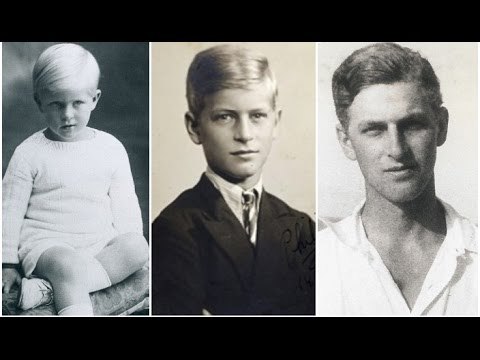
The Greek royal family, north German imports shipped in during the 19th century, bore much of the popular anger for this disaster. King Constantine fled to Italy, and his brother Andrew was arrested and only escaped execution through the intervention of his relative Britain’s George V. Andrew’s wife Alice, their four daughters and infant son Philip fled to France, completely impoverished but with the one possession that ensures that aristocrats are never truly poor: connections.
Philip had a traumatic childhood. He was forged by the turmoil of his first decade and then moulded by his schooling. His early years were spent wandering, as his place of birth ejected him, his family disintegrated and he moved from country to country, none of them ever his own. When he was just a year old, he and his family were scooped up by a British destroyer from his home on the Greek island of Corfu after his father had been condemned to death. They were deposited in Italy. One of Philip's first international journeys was spent crawling around on the floor of the train from an Italian port city, "the grubby child on the desolate train pulling out of the Brindisi night," as his older sister Sophia later described it.
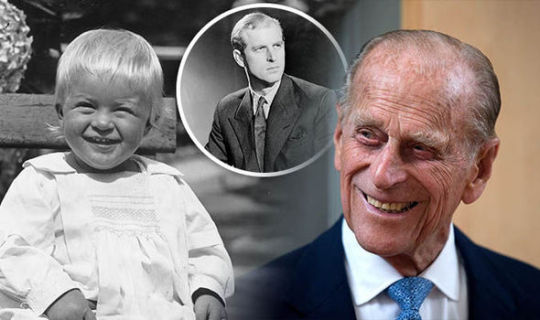
In Paris, he lived in a house borrowed from a relative; but it was not destined to become a home. In just one year, while he was at boarding school in Britain, the mental health of his mother, Princess Alice, deteriorated and she went into an asylum; his father, Prince Andrew, went off to Monte Carlo to live with his mistress. "I don't think anybody thinks I had a father," he once said. Andrew would die during the war. Philip went to Monte Carlo to pick up his father's possessions after the Germans had been driven from France; there was almost nothing left, just a couple of clothes brushes and some cuff-links.
Philip’s four sisters were all much older, and were soon all married to German aristocrats (the youngest would soon die in an aeroplane crash, along with her husband and children). His sisters became ever more embroiled in the German regime. In Scotland going to Gordonstoun boarding school, Philip went the opposite direction, becoming ever more British. Following the death of his sister Cecilie in a plane crash in 1937, the gulf widened. As the clouds of conflict gathered, the family simply disintegrated. With a flash of the flinty stoicism that many would later interpret, with no little justification, as self-reliance to the point of dispassion, the prince explained: “It’s simply what happened. The family broke up… I just had to get on with it. You do. One does.”
In the space of 10 years he had gone from a prince of Greece to a wandering, homeless, and virtually penniless boy with no-one to care for him. He got through it by making a joke of everything, and by being practical.
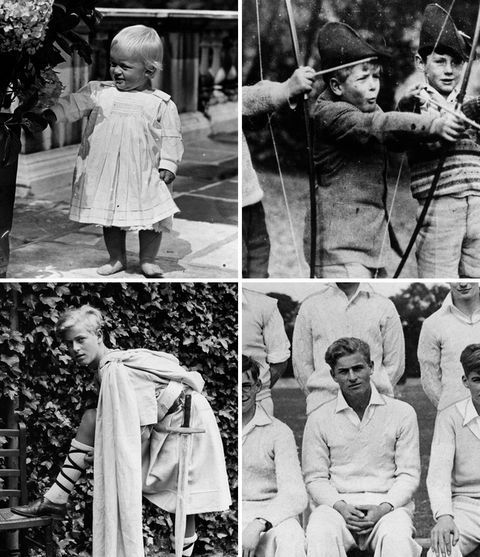
By the time he went to Gordonstoun, a private boarding school on the north coast of Scotland, Philip was tough, independent and able to fend for himself; he'd had to be. Gordonstoun would channel those traits into the school's distinct philosophy of community service, teamwork, responsibility and respect for the individual. And it sparked one of the great passions of Philip's life - his love of the sea. It was Gordonstoun that nurtured that love through the maturation of his character.
Philip adored the school as much as his son Charles would despise it. Not just because the stress it put on physical as well as mental excellence - he was a great sportsman. But because of its ethos, laid down by its founder Kurt Hahn, a Jewish exile from Nazi Germany.
Hahn first met Philip as a boy in Nazi Germany. Through a connection via one of his sister’s husbands, Philip, the poor, lonely boy was first sent off to a new school - in Nazi Germany. Which was as fun as can be imagined. Schloss Salem had been co-founded by stern educator called Kurt Hahn, a tough, discipline-obsessed conservative nationalist who saw civilisation in inexorable decline. But by this stage Hahn, persecuted for being Jewish in Nazi Germany, had fled to Britain, and Philip did not spend long at the school either, where pressure from the authorities was already making things difficult for the teachers. Philip laughed at the Nazis at first, because their salute was the same gesture the boys at his previous school had to make when they wanted to go to the toilet, but within a year he was back in England, a refugee once again.
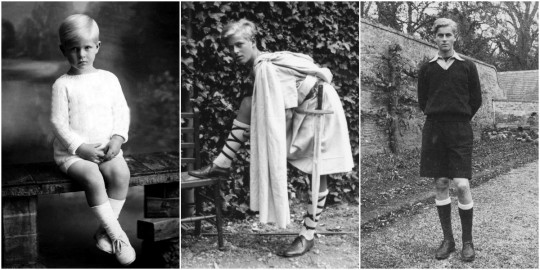
Philip happily attended Hahn’s new school, Gordonstoun, which the strict disciplinarian had set up in the Scottish Highlands. Inspired by Ancient Sparta, the boys (and then later girls) had to run around barefoot and endure cold showers, even in winter, the whole aim of which was to drive away the inevitable civilisational decay Hahn saw all around him. To 21st century ears it sounds like hell on earth, yet Philip enjoyed it, illustrating just what a totally alien world he came from.
That ethos became a significant, perhaps the significant, part of the way that Philip believed life should be lived. It shines through the speeches he gave later in his life. "The essence of freedom," he would say in Ghana in 1958, "is discipline and self-control." The comforts of the post-war era, he told the British Schools Exploring Society a year earlier, may be important "but it is much more important that the human spirit should not be stifled by easy living". And two years before that, he spoke to the boys of Ipswich School of the moral as well as material imperatives of life, with the "importance of the individual" as the "guiding principle of our society".
It was at Gordonstoun one of the great contradictions of Philip's fascinating life was born. The importance of the individual was what in Kurt Hahn's eyes differentiated Britain and liberal democracies from the kind of totalitarian dictatorship that he had fled. Philip put that centrality of the individual, and individual agency - the ability we have as humans to make our own moral and ethical decisions - at the heart of his philosophy.
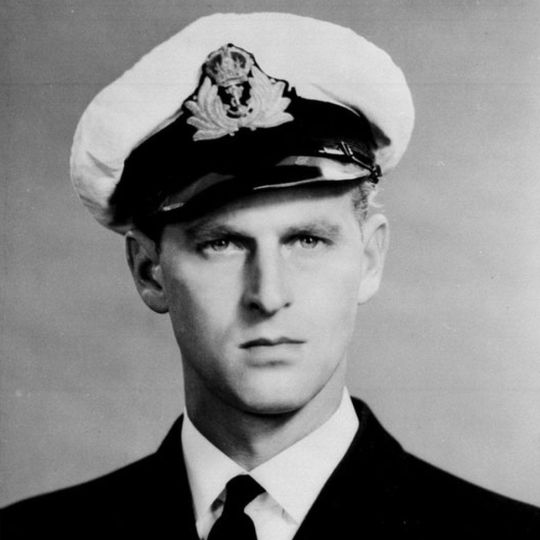
At Dartmouth Naval College in 1939, the two great passions of his life would collide. He had learned to sail at Gordonstoun; he would learn to lead at Dartmouth. And his driving desire to achieve, and to win, would shine through. Despite entering the college far later than most other cadets, he would graduate top of his class in 1940. In further training at Portsmouth, he gained the top grade in four out of five sections of the exam. He became one of the youngest first lieutenants in the Royal Navy.
The navy ran deep in his family. His maternal grandfather had been the First Sea Lord, the commander of the Royal Navy; his uncle, "Dickie" Mountbatten, had command of a destroyer while Philip was in training. In war, he showed not only bravery but guile. It was his natural milieu. "Prince Philip", wrote Gordonstoun headmaster Kurt Hahn admiringly, "will make his mark in any profession where he will have to prove himself in a trial of strength".
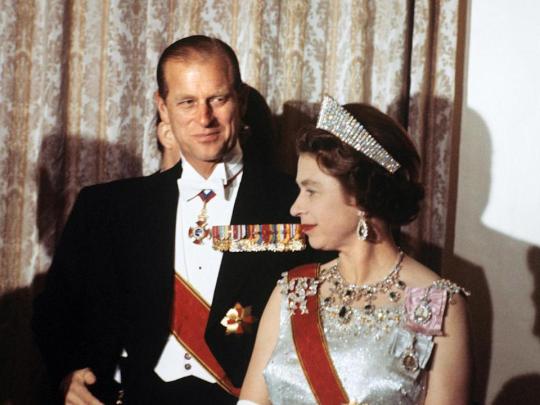
2. Prince Philip and the modernisation of the monarchy
In his own words, the process of defining what it meant to be a royal consort was one of “trial and error.” Speaking with BBC One’s Fiona Bruce in 2011, Philip explained, “There was no precedent. If I asked somebody, 'What do you expect me to do?' they all looked blank. They had no bloody idea, nobody had much idea.” So he forged for himself a role as a moderniser of the monarchy.
He could not have had much idea back in 1939. Back then in Dartmouth in 1939, as war became ever more certain, the navy was his destiny. He had fallen in love with the sea itself. "It is an extraordinary master or mistress," he would say later, "it has such extraordinary moods." But a rival to the sea would come.
When King George VI toured Dartmouth Naval College, accompanied by Philip's uncle, he brought with him his daughter, Princess Elizabeth. Philip was asked to look after her. He showed off to her, vaulting the nets of the tennis court in the grounds of the college. He was confident, outgoing, strikingly handsome, of royal blood if without a throne. She was beautiful, a little sheltered, a little serious, and very smitten by Philip.
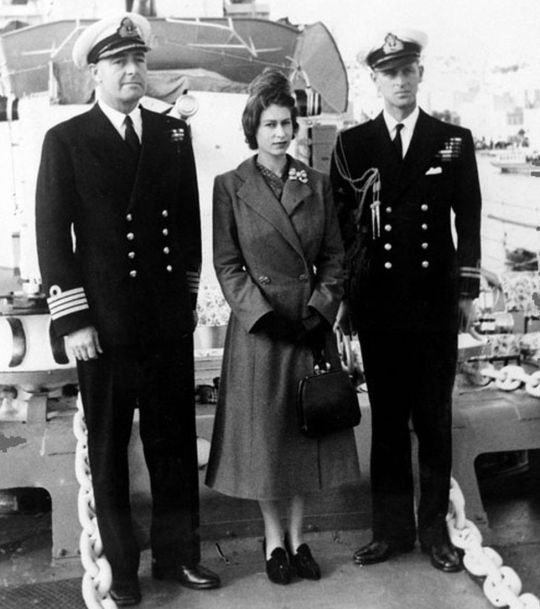
Did he know then that this was a collision of two great passions? That he could not have the sea and the beautiful young woman? For a time after their wedding in 1948, he did have both. As young newlyweds in Malta, he had what he so prized - command of a ship - and they had two idyllic years together. But the illness and then early death of King George VI brought it all to an end.
He knew what it meant, the moment he was told. Up in a lodge in Kenya, touring Africa, with Princess Elizabeth in place of the King, Philip was told first of the monarch's death in February 1952. He looked, said his equerry Mike Parker, "as if a ton of bricks had fallen on him". For some time he sat, slumped in a chair, a newspaper covering his head and chest. His princess had become the Queen. His world had changed irrevocably.
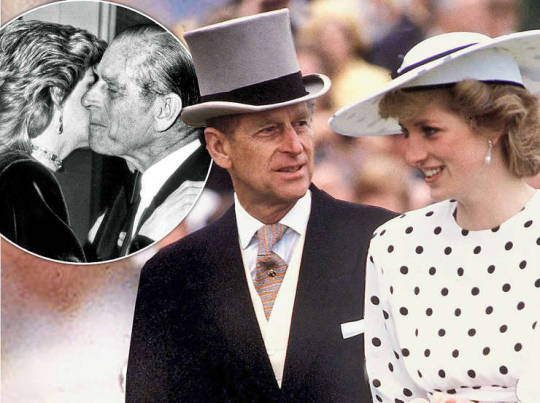
While the late Princess Diana was later to famously claim that there were “three people” in her marriage - herself, Prince Charles and Camilla - there were at least 55 million in Philip and Elizabeth’s. As Elizabeth dedicated her life to her people at Westminster Abbey at the Coronation on June 2, 1953, it sparked something of an existential crisis in Philip. Many people even after his death have never really understood this pivotal moment in Philip’s life. All his dreams of being a naval officer and a life at sea as well as being the primary provider and partner in his marriage were now sacrificed on the altar of duty and love.
With his career was now over, and he was now destined to become the spare part. Philip, very reasonably, asked that his future children and indeed his family be known by his name, Mountbatten. In effect he was asking to change the royal family’s name from the House of Windsor to the House of Mountbatten. But when Prime Minister Winston Churchill got wind of it as well as the more politically agile courtiers behind the Queen, a prolonged battle of wits ensued, and it was one Philip ultimately lost. It was only in 1957 that he accepted the title of “Prince.”
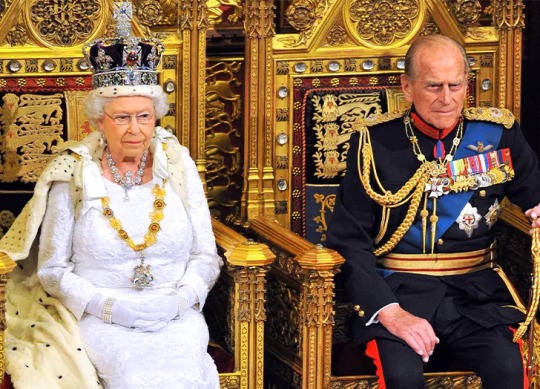
Even though he had almost lost everything dear to him and his role now undefined, he didn’t throw himself a pity party. He just got on with it. Philip tried to forge his own distinct role as second fiddle to the woman who had come to represent Great Britain. He designated himself the First Officer of the Good Ship Windsor. He set about dusting off some of the cobwebs off the throne and letting some daylight unto the workings of the monarchy by advocating reasonable amount of modernisation of the monarchy.
He had ideas about modernising the royal family that might be called “improving optics” today. But in his heart of hearts he didn’t want the monarchy to become a stuffy museum piece. He envisaged a less stuffy and more popular monarchy, relevant to the lives of ordinary people. Progress was always going to be incremental as he had sturdy opposition from the old guard who wanted to keep everything as it was, but nevertheless his stubborn energy resulted in significant changes.
When a commission chaired by Prince Philip proposed broadcasting the 1953 investiture ceremony that formally named Elizabeth II as queen on live television, Prime Minister Winston Churchill reacted with outright horror, declaring, “It would be unfitting that the whole ceremony should be presented as if it were a theatrical performance.” Though the queen had initially voiced similar concerns, she eventually came around to the idea, allowing the broadcast of all but one segment of the coronation. Ultimately, according to the BBC, more than 20 million people tuned in to the televised ceremony - a credit to the foresight of Philip.
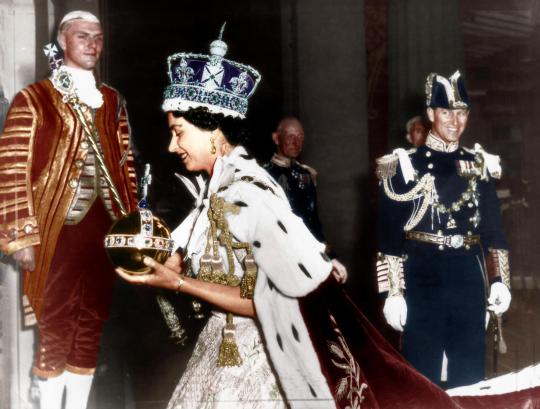
Elizabeth’s coronation marked a watershed moment for a monarchy that has, historically, been very hands off, old-fashioned and slightly invisible. Over the following years, the royals continued to embrace television as a way of connecting with the British people: In 1957, the queen delivered her annual Christmas address during a live broadcast. Again, this was Philip’s doing when he cajoled the Queen to televise her message live. He even helped her in how to use the teleprompter to get over her nerves and be herself on screen.
Four years later, in 1961, Philip became the first family member to sit for a television interview. It is hard for us to imagine now but back then it was huge. For many it was a significant step in modernising the monarchy.
Though not everything went to plan. Toward the end of the decade, the Windsors even invited cameras into their home. A 1969 BBC fly-on-the-wall documentary, instigated by Philip to show life behind the scenes, turned into an unmitigated disaster: “The Windsors” revealed the royals to be a fairly normal, if very rich, British upper-class family who liked barbecues, ice cream, watching television and bickering. The mystery of royalty took a hit below the waterline from their own torpedo, a self-inflicted wound from which they took a long time to recover. Shown once, the documentary was never aired again. But it had an irreversible effect, and not just by revealing the royals to be ordinary. By allowing the cameras in, Philip opened the lid to the prying eyes of the paparazzi who could legitimately argue that since the Royals themselves had sanctioned exposure, anything went. From then on, minor members of the House of Windsor were picked off by the press, like helpless tethered animals on a hunting safari.
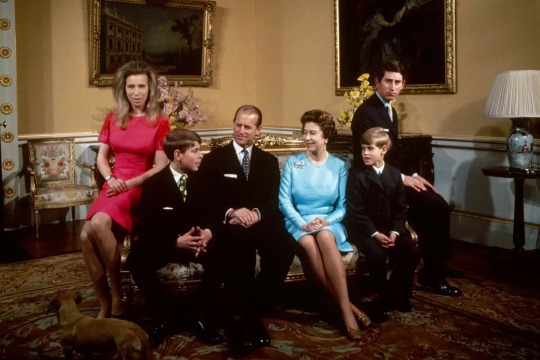
Prince Philip also took steps to reorganise and renovate the royal estates in Sandringham and Balmoral such as intercoms, modern dish washers, generally sought to make the royal household and the monarchy less stuffy, not to have so much formality everywhere.
Philip helped modernised the monarchy in other ways to acknowledge that the monarchy could be responsive to changes in society. It was Prince Philip - much to the chagrin of the haughty Princess Margaret and other stuffy old courtiers - who persuaded the Queen to host informal lunches and garden parties designed to engage a broader swath of the British public. Conversely, Prince Philip heartily encouraged the Queen (she was all for it apparently but was still finding her feet as a new monarch) to end the traditional practice of presenting debutantes from aristocratic backgrounds at court in 1952. For Philip and others it felt antiquated and out of touch with society. I know in speaking to my grandmother and others in her generation the decision was received with disbelief at how this foreign penniless upstart could come and stomp on the dreams of mothers left to clutch their pearls at the prospect there would be no shop window for their daughter to attract a suitable gentleman for marriage. One of my great aunts was over the moon happy that she never would have to go through what she saw as a very silly ceremony because she preferred her muddy wellies to high heels.
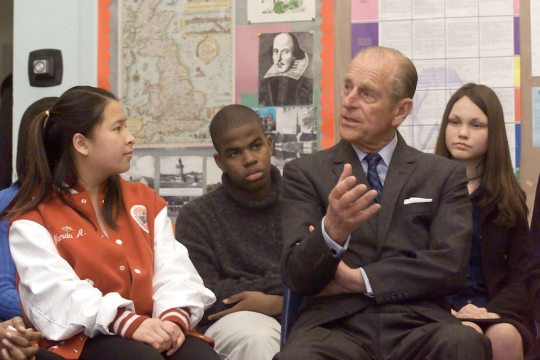
A former senior member of the royal household, who spent several years working as one of Prince Philip’s aides, and an old family friend, once told us around a family dinner table that the Duke of Edinburgh was undoubtedly given a sense of permanence by his marriage into the Royal Family that was missing from earlier years. But the royal aide would hastily add that Prince Philip, of course, would never see it that way.
Prince Philip’s attitude was to never brood on things or seek excuses. And he did indeed get on with the job in his own way - there should be no doubt that when it came to building and strengthening the Royal Family it was a partnership of equals with the Queen. Indeed contrary to Netflix’s hugely popular series ‘The Crown’ and its depiction of the royal marriage with Philip’s resentment at playing second fiddle, the prince recognised that his “first duty was to serve the Queen in the best way I could,” as he told ITV in 2011. Though this role was somewhat ill-suited to his dynamic, driven, and outspoken temperament, Philip performed it with utter devotion.
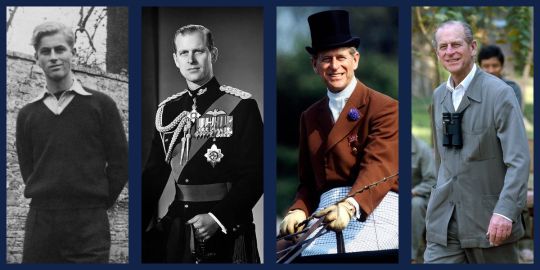
3. Prince Philip’s legacy
One could argue rightly that modernising the monarchy was his lasting legacy achievement. But he also tried to modernise a spent and exhausted Britain as it emerged from a ruinous war. When peace came, and with it eventual economic recovery, Philip would throw himself into the construction of a better Britain, urging the country to adopt scientific methods, embracing the ideas of industrial design, planning, education and training. A decade before Harold Wilson talked of the "white heat of the technological revolution", Philip was urging modernity on the nation in speeches and interviews. He was on top of his reading of the latest scientific breakthroughs and well read in break out innovations.
This interest in modernisation was only matched by his love for nature. As the country and the world became richer and consumed ever more, Philip warned of the impact on the environment, well before it was even vaguely fashionable. As president of the World Wildlife Fund (WWF) in the UK for more than 20 years from 1961, he was one of the first high-profile advocates of the cause of conservation and biological diversity at a time when it was considered the preserve of an eccentric few.
For a generation of school children in Britain and the Commonwealth though, his most lasting legacy and achievement will be the Duke of Edinburgh Awards (DofE). He set up the Duke of Edinburgh award, a scheme aimed at getting young people out into nature in search of adventure or be of service to their communities. It was a scheme that could match the legacy of Baden Powell’s scouts movement.
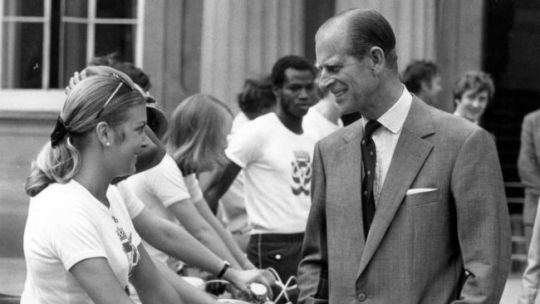
When Prince Philip first outlined his idea of a scheme to harness the values of his education at Gordonstoun by bringing character-building outdoor pursuits to the many rather than the fee-paying few, he received short shrift from the government of the day. The then minister of education, Sir David Eccles responded to the Duke’s proposal by saying: “I hear you’re trying to invent something like the Hitler Youth.” Undeterred he pushed on until it came to fruition.
I’m so glad that he did. I remember how proud I was for getting my DofE Awards while I was at boarding school. With the support of great mentors I managed to achieve my goals: collecting second-hand English books for a literacy programme for orphaned street children in Delhi, India with a close Indian school friend and her family; and completing a 350 mile hike following St. Olav’s Pilgrimmage Trail from Selånger, on the east coast of Sweden, and ending at Nidaros Cathedral in Trondheim, on the west coast of Norway.
It continues to be an enduring legacy. Since its launch in 1956, the Duke of Edinburgh awards have been bestowed upon some 2.5 million youngsters in Britain and some eight million worldwide. For a man who once referred to himself as a “Greek princeling of no consequence”, his pioneering tutelage of these two organisations (alongside some 778 other organisations of which he was either president or a patron) would be sufficient legacy for most.
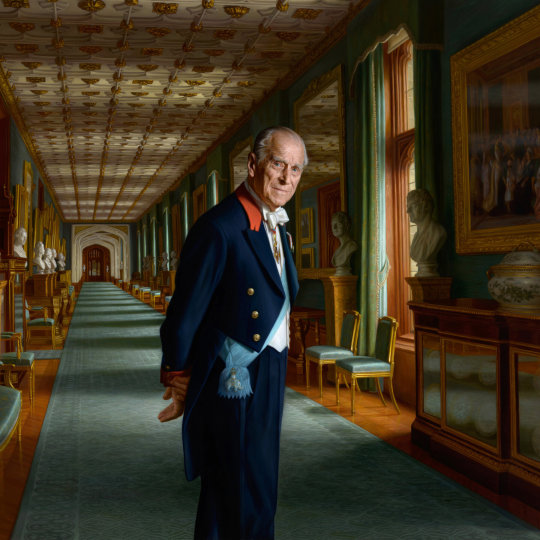
4. Prince Philip’s character
It may surprise some but what I liked most about Prince Philip was the very thing that helped him achieve so much and leave a lasting legacy: his character.
It is unhelpful to the caricature of Prince Philip as an unwavering but pugnacious consort whose chief talent was a dizzying facility in off-colour one-liners that he was widely read and probably the cleverest member of his family.
His private library at Windsor consists of 11,000 tomes, among them 200 volumes of poetry. He was a fan of Jung, TS Eliot, Shakespeare and the cookery writer Elizabeth David. As well as a lifelong fascination with science, technology and sport, he spoke fairly fluent French, painted and wrote a well received book on birds. It’s maddening to think how many underestimated his genuine intellect and how cultured he was behind the crusty exterior.
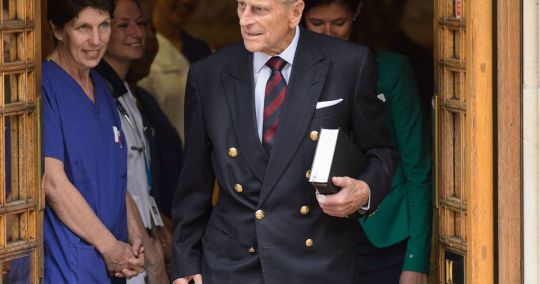
He didn’t have an entourage to fawn around him. He was the first to own a computer at Buckingham Palace. He answered his own phone and wrote and responded to his own correspondence. By force of character he fought the old guard courtiers at every turn to modernise the monarchy against their stubborn resistance.
Prince Philip was never given to self-analysis or reflection on the past. Various television interviewers tried without success to coerce him in to commenting on his legacy.But once when his guard was down he asked on the occasion of his 90th birthday what he was more proud of, he replied with characteristic bluntness: “I couldn’t care less. Who cares what I think about it, I mean it’s ridiculous.”
All of which neatly raises the profound aversion to fuss and the proclivity for tetchiness often expressed in withering put-downs that, for better or worse, will be the reflex memory for many of the Duke of Edinburgh. If character is a two edged sword so what of his gaffes?
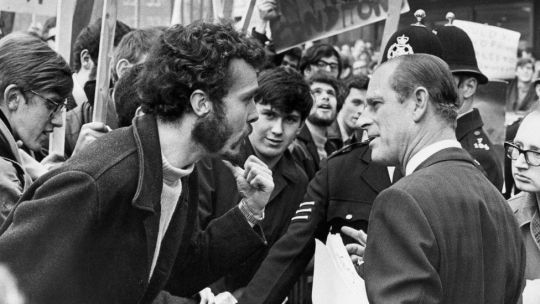
There is no doubt his cult status partly owed to his so-called legendary gaffes, of which there are enough to fill a book (indeed there is a book). But he was no racist. None of the Commonwealth people or foreign heads of state ever said this about him. Only leftist republicans with too much Twitter time on their hands screamed such a ridiculous accusation. They’re just overly sensitive snowflakes and being devoid of any humour they’re easily triggered.
There was the time that Philip accepted a gift from a local in Kenya, telling her she was a kind woman, and then adding: “You are a woman, aren’t you?” Or the occasion he remarked “You managed not to get eaten, then?” to a student trekking in Papua New Guinea. Then there was his World Wildlife Fund speech in 1986, when he said: “If it has got four legs and it is not a chair, if it has got two wings and it flies but is not an aeroplane, and if it swims and it is not a submarine, the Cantonese will eat it.” Well, he wasn’t wrong.
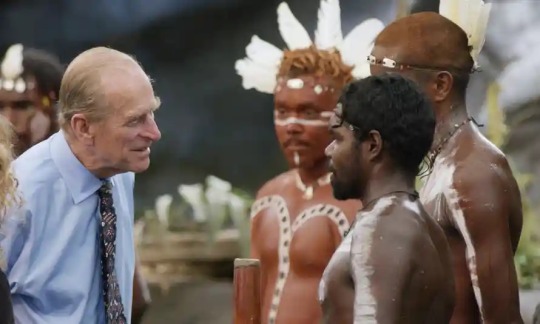
Philip quickly developed a reputation for what he once defined, to the General Dental Council, as “dentopedology – the science of opening your mouth and putting your foot in it”. Clearly he could laugh at himself as he often did as an ice breaker to put others at ease.
His remarking to the president of Nigeria, who was wearing national dress, “You look like you’re ready for bed”, or advising British students in China not to stay too long or they would end up with “slitty eyes”, is probably best written off as ill-judged humour. Telling a photographer to “just take the fucking picture” or declaring “this thing open, whatever it is”, were expressions of exasperation or weariness with which anyone might sympathise.
Above all, he was also capable of genuine if earthy wit, saying of his horse-loving daughter Princess Anne: “If it doesn’t fart or eat hay she isn’t interested.” Many people might have thought it but few dared say it. If Prince Philip’s famous gaffes provoked as much amusement as anger, it was precisely because they seem to give voice to the bewilderment and pent-up frustrations with which many people viewed the ever-changing modern world.
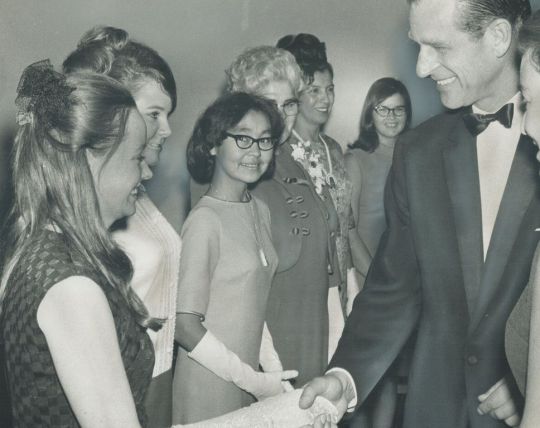
A former royal protection officer recounts how while on night duty guarding a visiting Queen and consort, he engaged in conversation with colleagues on a passing patrol. It was 2am and the officer had understood the royal couple to be staying elsewhere in the building until a window above his head was abruptly slammed open and an irate Prince Philip stuck his head out of the window to shout: “Would you fuck off!” Without another word, he then shut the window.
The Duke at least recognised from an early age that he was possessed of an abruptness that could all too easily cross the line from the refreshingly salty to crass effrontery.
One of his most perceptive biographers, Philip Eade, recounted how at the age of 21 the prince wrote a letter to a relation whose son had recently been killed in combat. He wrote: “I know you will never think much of me. I am rude and unmannerly and I say things out of turn which I realise afterwards must have hurt someone. Then I am filled with remorse and I try to put matters right.”
In the case of the royal protection officer, the Duke turned up in the room used by the police officers when off duty and said: “Terribly sorry about last night, wasn’t quite feeling myself.”
Aides have also ventured to explain away some of their employer’s more outlandish remarks - from asking Cayman islanders “You are descended from pirates aren’t you?” to enquiring of a female fashion writer if she was wearing mink knickers - as the price of his instinctive desire to prick the pomposity of his presence with a quip to put others at ease.
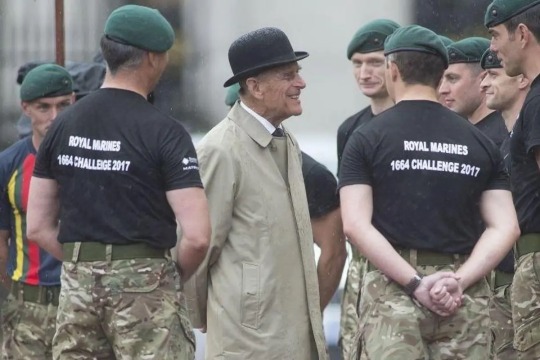
Indeed many people forget that his ‘gaffes’ were more typical of the clubbish humour of the British officer class – which of course would be less appreciated, sometimes even offensive, to other ears. It’s why he could relate so well to veterans who enjoyed his bonhomie company immensely.
But behind the irascibility, some have argued there also lay a darker nature, unpleasantly distilled in his flinty attitude to his eldest son. One anecdote tells of how, in the aftermath of the murder of the Duke’s uncle and surrogate father, Lord Mountbatten, Philip lectured his son, who was also extremely fond of his “honorary grandfather”, that he was not to succumb to self-pity. Charles left the room in tears and when his father was asked why he had spoken to his son with so little compassion, the Duke replied: “Because if there’s any crying to be done I want it to happen within this house, in front of his family, not in public. He must be toughened up, right now.”
But here I would say that Prince Philip’s intentions were almost always sincere and in no way cruel. He has always tried to protect his family - even from their own worst selves or from those outside the family ‘firm’ who may not have their best interest at heart.
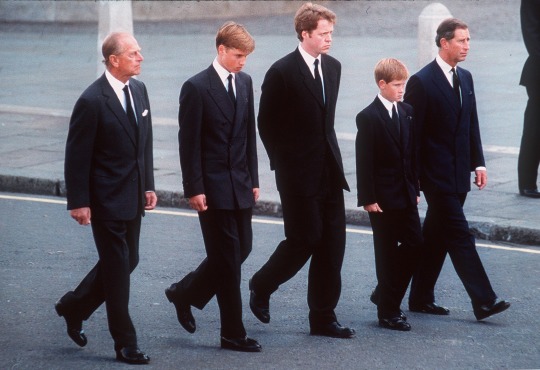
In 1937, a 16-year-old Prince Philip had walked behind his elder sister Cecile’s coffin after she was killed in a plane crash while heavily pregnant. The remains of newly-born infant found in the wreckage suggested the aircraft had perished as the pilot sought to make an emergency landing in fog as the mother entered childbirth. It was an excruciating taste of tragedy which would one day manifest itself in a very princely form of kindness that was deep down that defined Philip’s character.
When about 60 years later Prime Minister Tony Blair’s spin doctors in Downing Street tried to strong arm the Queen and the royal household over the the arrangements for the late Prince Diana’s funeral, it was Philip who stepped in front to protect his family. The Prime Minister and his media savvy spin doctors wanted the two young princes, William and Harry, to walk behind the coffin.
The infamous exchange was on the phone during a conference call between London and Balmoral, and the emotional Philip was reportedly backed by the Queen. The call was witnessed by Anji Hunter, who worked for Mr Blair. She said how surprised she was to hear Prince Philip’s emotion. ‘It’s about the boys,” he cried, “They’ve lost their mother”. Hunter thought to herself, “My God, there’s a bit of suffering going on up there”.’
Sky TV political commentator Adam Boulton (Anji Hunter’s husband) would write in his book Tony’s Ten Years: ‘The Queen relished the moment when Philip bellowed over the speakerphone from Balmoral, “Fuck off. We are talking about two boys who have just lost their mother”. Boulton goes on to say that Philip: ‘…was trying to remind everyone that human feelings were involved. No 10 were trying to help the Royals present things in the best way, but may have seemed insensitive.’
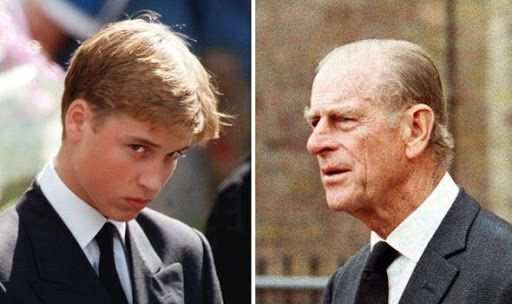
In the end the politicians almost didn’t get their way. Prince Philip stepped in to counsel his grandson, Prince William, after he had expressed a reluctance to follow his mother’s coffin after her death in Paris. Philip told the grieving child: “If you don’t walk, I think you’ll regret it later. If I walk, will you walk with me?”
It’s no wonder he was sought as a counsellor by other senior royals and especially close to his grandchildren, for whom he was a firm favourite. His relationship with Harry was said to have become strained, however, following the younger Prince’s decision to reject his royal inheritance for a life away from the public eye in America with his new American wife, Meghan Markle. For Prince Philip I am quite sure it went against all the elder Prince had lived his life by - self-sacrifice for the greater cause of royalty.
This is the key to Philip’s character and in understanding the man. The ingrained habits of a lifetime of duty and service in one form or another were never far away.
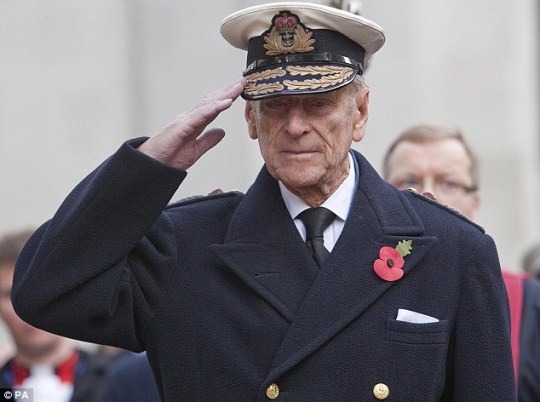
In conclusion then....
After more time passes I am sure historians will make a richer reassessment of Prince Philip’s life and legacy. Because Prince Philip was an extraordinary man who lived an extraordinary life; a life intimately connected with the sweeping changes of our turbulent 20th Century, a life of fascinating contrast and contradiction, of service and some degree of solitude. A complex, clever, eternally restless man that not even the suffocating protocols of royalty and tradition could bind him.
Although he fully accepted the limitations of public royal service, he did not see this as any reason for passive self-abnegation, but actively, if ironically, identified with his potentially undignified role. It is this bold and humorous embrace of fated restriction which many now find irksome: one is no longer supposed to mix public performance with private self-expression in quite this manner.
Yet such a mix is authentically Socratic: the proof that the doing of one’s duty can also be the way of self-fulfilment. The Duke’s sacrifice of career to romance and ceremonial office is all the more impressive for his not hiding some annoyance. The combination of his restless temperament and his deeply felt devotion to duty found fruitful expression; for instance, in the work of Saint George’s House Windsor - a centre and retreat that he created with Revd. Robin Woods - in exploring religious faith, philosophy, and contemporary issues.
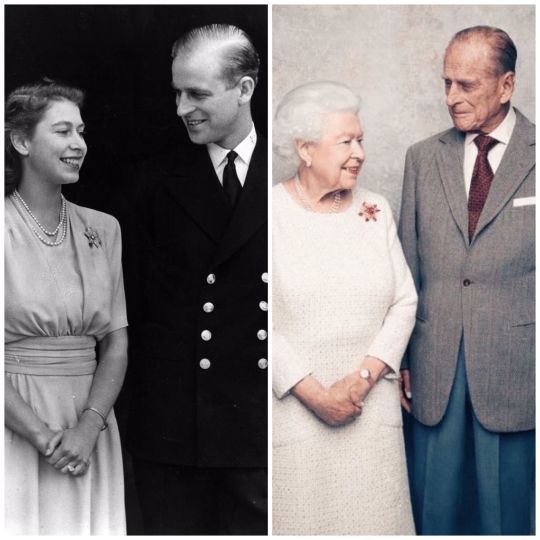
Above all he developed a way to be male that was both traditional and modern. He served one woman with chivalric devotion as his main task in life while fulfilling his public engagements in a bold and active spirit. He eventually embraced the opportunity to read and contemplate more. And yet, he remained loyal to the imperatives of his mentor Kurt Hahn in seeking to combine imagination with action and religious devotion with practical involvement.
Prince Philip took more pride in the roles he had accidentally inherited than in the personal gifts which he was never able fully to develop. He put companionship before self-realisation and acceptance of a sacred symbolic destiny before the mere influencing of events. In all these respects he implicitly rebuked our prevailing meritocracy which over-values officially accredited attainment, and our prevailing narcissism which valorises the assertion of discrete identities.
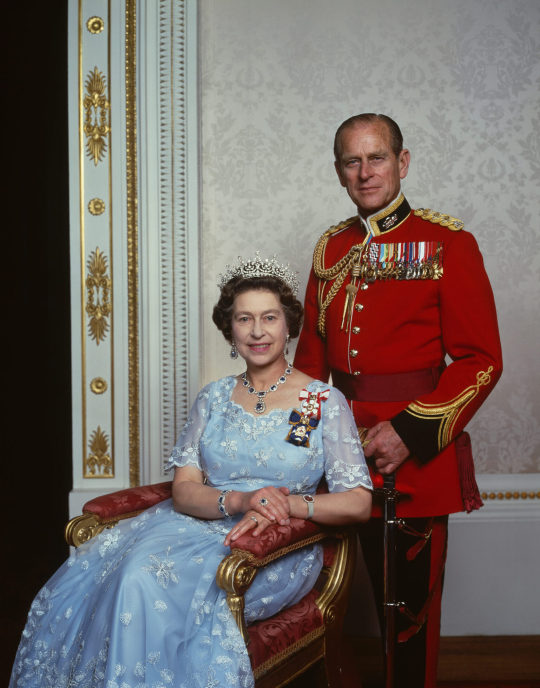
Prince Philip was Britain’s longest-serving consort. He was steadfast, duty driven, and a necessary adjunct to the continuity and stability of the Queen and the monarchy. Of all the institutions that have lost the faith of the British public in this period - the Church, Parliament, the media, the police - the Monarchy itself has surprisingly done better than most at surviving, curiously well-adapted to a period of societal change and moral anarchy. The House of Hanover and later Saxe-Coburg and Gotha (changed to Windsor), since their arrival in this country in 1714, have been noted above all for their ability to adapt. And just as they survived the Victorian age by transforming themselves into the bourgeoise, domestic ideal, so they have survived the new Elizabethan era (Harry-Meghan saga is just a passing blip like the Edward-Wallis Simpson saga of the 1930s).
There was once a time when the Royal’s German blood was a punchline for crude and xenophobic satirists. Now it is the royals who are deeply British while the country itself is increasingly cosmopolitan and globalised. British society has seen a greater demographic change than the preceding four or five thousand years combined, the second Elizabethan age has been characterised more than anything by a transformational movement of people. Prince Philip, the Greek-born, Danish-German persecuted and destitute wanderer who came to become one of the Greatest Britons of the past century, perhaps epitomised that era better than anyone else. And he got through it by making a joke of everything, and by being practical.
I hope I don’t exaggerate when I say that in our troubled times over identity, and our place and purpose in the world, we need to heed his selfless example more than ever.
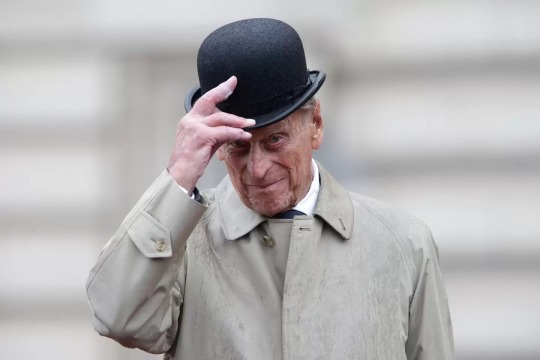
As Heraclitus wisely said, Ήθος ανθρώπω δαίμων (Character is destiny.)
RIP Prince Philip. You were my prince. God damn you, I miss you already.
Thanks for your question.
#question#ask#prince philip#duke of edinburgh#queen elizabeth II#the queen of spades#monarchy#britain#british#royalty#politics#history#culture#europe#crown#icon#great briton#society
284 notes
·
View notes
Text
The Princess and The Duke – Part 1
Duke!Namjoon x Princess!reader
I know I said this wasn’t going to be out until Friday, but after the Scammys, I thought I’d put it out today! This has not yet been edited.
Warnings - future smut, allusions to smut.
The first time you met you were six months old. Barely aware you existed, let alone there was a whole world existing around you. Namjoon was two at the time. A chubby little toddler clinging desperately to his mother as he tried to hide away from all the other strange people in the room. Most of the kingdom had turned out for your christening, so obviously the future Duke’s family had also made an appearance. They stood with the rest of the court at the front of the church, most of the adults attempting to corral children of their own instead of watching the Princess’ baptism.
It was only when a shrill cry echoed through the church hall that Namjoon looked up from his mother’s shoulder trying to locate the noise. Turned out you didn’t appreciate being dipped into freezing cold holy water. From then on, he’d watched intently, each movement made by the priest and your family, craning his neck to watch you wiggle in the queen’s arms. You were just so small, and so pink. He liked pink, and you were wrapped in piles of pink lace. He knew these were traditional colours for your kingdom, his mom liked to tell him stories about the pink flowers that grew throughout his homeland. Beautiful pink daisies. They were his favourite bedtime stories.
Stories of a brave king leading his army into battle. Each week he would send home a bouquet of the only flower that grew on the battlefield. Each week the queen would know he was okay, until one week they didn’t arrive. For the next few days, the queen was inconsolable, after that she was catatonic. She sat draped in black watching the last of the pink daisies wither. As the last petal fell from the shrivelled bud, a shout was heard throughout the kingdom. The king had returned, enemies slain, and with him he brought as many flowers as the cavalry could carry. The seeds were planted throughout the country, and those were the same flowers that remained to this day. The flowers that were lining the pews of the church, and the ballroom at the palace.
After the christening, members of the court were invited for a meal and to meet the infant princess, to meet you. The banquet was held in the ballroom, a long table adorned with wreaths and favours for each of the guests. You were placed in a cradle close to the king. A place where all could visit to pay their respects and your father could protect you. Once his family had finished their meal, they visited your crib, offering a gift and paying their respects to the royals. Namjoon tugged at his mother’s dress until she lifted him to get a better look. As he peered into the cot, he was shocked to find you staring straight up at him. Other babies he met always seemed to be asleep, but not you.
He wriggled in the duchess’ arms until he could reach you. The room fell silent as he extended his chubby hand to poke at your own curled fist. No one outside of your family, the priest, and the doctors had dared to touch you yet. They waited with bated breath for a response from the king. Little Namjoon paid no attention to the eyes on him, too focused on you. Your small fingers wrapped their way around his. The king had cooed at the event, closely followed by everyone else in the room.
…
The next time you met Namjoon properly you were four, he was almost six. You’d been allowed outside to play with the other children of the court. The problem was, many of them were considerably older than you. None of the ‘big’ girls wanted to play silly little girl games. So you sat alone and watched them as they made daisy chains together. You tried to copy them from afar, but your pudgy little fingers wouldn’t cooperate, ripping through the stems instead of creating the holes needed to thread more flowers.
Namjoon had been following around the gardener when he saw you. Decapitated daisies lay by the dozen around your feet. He couldn’t bear to see the carnage continue, so he took pity on you. He picked a flower with a thick enough stem and passed it too you. To say you were thrilled was an understatement. You’d taken the flower excitedly and threaded another through before giving it back to him to make another hole. The two of you had then spent the next half hour together, him piercing stems and you threading them into long chains. He laughed as you concentrated. Your tongue stuck out of the side of your mouth as you focused on the task at hand.
When you decided the chain was long enough, he made one last hole so you could form a circle. With the ring complete you stepped on your tippy toes to place it over his head, nodding in approval as the string draped from his neck to his knees. He looked down, assessing his new accessory and beamed a smile back at you. The first time you ever saw his dimples. Immediately you were compelled to poke them. He didn’t stop you as you reached for his cheek, instead laughing so they deepened.
You weren’t like any princess he had seen in his books. Those princesses were graceful and dainty. You were more like a bull in a china shop. Honestly, he was relived. All the other boys were in high school, they had no time for him. And the girls all wanted him to play ‘prince charming’. It was fun playing with you. You’d run around the gardens with him, dig in the mud, and exchange the stories your parents read at bedtimes.
…
Age six brought the loss of your first tooth. The tooth had been placed in a tissue under your pillow and the next morning it had become money! You had been so excited to tell Namjoon all about it, only for him to burst your bubble.
“The tooth fairy isn’t real Y/N” he’d stated matter-of-factly, his nose turned up at the notion.
“Is too!” you’d cried back petulantly. You’d seen her with your own two eyes. Well you’d been half asleep, and it was dark… but you were certain it had been her.
“Is not!” the eight-year-old boy retorted. “I’ll prove it! Next time you lose a tooth don’t tell nobody. She won’t come I promise.” He’d sounded so smug. You wanted to hit him. instead you set out to prove him wrong. You kept wiggling your teeth hoping one would come loose. It’s around a month later you get your chance. The tooth came out in the apple you were eating for dessert. Carefully you hid the bone from your nanny so she couldn’t tell your parents. After you were tucked in that night, you slid the bone under your pillow and waited for the fairy to visit you. But she never came.
The next day when you saw Namjoon, you were devastated, but still not ready to concede the fairy’s existence.
“Maybe I upset her?” you sniffle at him “You’re not supposed to wait for her, I broke the rules! That’s why she didn’t come! What if she never visits me again?” tears fell freely down your face. Namjoon had never felt so guilty, not even when he lied about breaking his mom’s favourite vase. He had watched you cry for a moment, unsure of where to go from here. He had made the heir to the throne cry… could he get locked away for this?
“It’s my fault Y/N! I was just jealous” he quickly tried to formulate a believable story in his head as you wiped away your tears.
“Jealous?” your voice was small, a little hope filtering through the sadness.
“Yeah… jealous. See I… uh… I’ve nearly got all my big teeth now, so she doesn’t come to see me as often. I bet if you put the tooth under your pillow tonight and go to sleep, she will come!” your face had lit up at the news. Immediately after he’d said goodbye to you, he went and told the gardener about your tooth. When you woke up the next day, a shiny coin was in the tooth’s place. You’d held the discovery over Namjoon for the few months, but he didn’t care. He was just happy you were happy and that he didn’t get into trouble.
…
At age eight you were definitely not shaping up to be the perfect princess. In fact you were quite the rambunctious little tot. Your mother became more and more exasperated every time you turned up with a new grass stain on one of your best gowns. She begged you to spend more time having tea parties with the girls instead. It was never your fault though. The tea parties were dull and Namjoon would challenge you to a race through the maze, or to see who could climb highest in the trees. You couldn’t just let him win.
If you weren’t running around or rolling down hills, you were lying together staring up at the clouds from the middle of the topless bandstand in the middle of the maze. The beautiful white stone structure had quickly become ‘your’ spot. None of the other palace kids showed any interest in exploring the maze, and the adults always seemed to get lost trying to find you. Hours were wasted with the two of you just staring up at the sky, sometimes talking about your day, sometimes in complete silence. It was just nice to be with him.
On calmer days he would read aloud from a book while you made daisy chains. You could do it by yourself now. Much more in control of your own limbs than you used to be. The summer before Namjoon was due to go to high school you made a chain so long you could coil it around the entire base of the bandstand.
…
After he started high school, you saw a lot less of Namjoon. He wasn’t able to come around as often between his homework and extracurriculars. Instead you begged your father to let you attend his football games. Each Saturday you went in disguise with your nanny to watch Namjoon play, regardless of the weather. You weren’t even sure you enjoyed the sport, but it was worth it for the smile he flashed every time he found you amongst the onlookers.
Each week you wore a different disguise wanting to make it difficult for him, but each time he found you without fail.
You melted every time, knowing that smile was just for you. Originally you told yourself it was just a swell of pride, watching your best friend play. Eventually you had to admit to yourself that maybe it was more than that, but you swallowed the crush. After all he was in high school, he wouldn’t want a silly little girl like you anyway.
…
When you turned fourteen it was time to for you to be presented to the kingdom. A ball was thrown in your honour, the first of many you would attend in your lifetime. The thought of being alone at any big event made you feel queasy. The fact that this one was going to be focused entirely on you made you ill for an entire week before. Namjoon had spent the week trying to reassure you that everything was going to be fine. Luckily, your birthday had been during a break from school so he could spend the time with you. He grew more and more concerned as he watched your health deteriorating to a point where you could barely keep water down. Eventually he came to a decision and asked for an audience with the king himself.
He’d dressed in his best suit making sure not a single hair was out of place. He marched straight up to the double doors to your father’s study and took a deep breath, more than prepared to argue his point. Your father had welcomed Namjoon into his office with open arms. He’d always been fond of the boy, especially knowing the weak spot you held for him. Regardless of the warm reception and his original confidence in his idea, Namjoon felt the nerves begin to overtake him. He wiped his sweaty palms on the sides of his suit jacket, breath coming out shakily.
“Can I escort Y/N to her first ball.” The king had been taken aback by Joon’s sudden outburst, his face showing obvious surprise at the young man’s bold request. Namjoon mistook the expression for a dismissal and so, in a much less eloquent way than he had practiced in is shower, he fought his case.
“Y/N has been ill all week; she doesn’t think she can do this alone…. And I just thought… maybe she would be okay if I were with her. I know I’m only a duke, but I just want her to be okay and I really think this would be good and it’ll only be for this one ball and…” Namjoon’s rambling came to an end when your father raised his hand. Namjoon clenched his fists as he waited for an answer.
Your father had taken his time to consider Namjoon’s proposal, enjoying the way the boy had squirmed under his gaze. To this day, Namjoon refers to it as the second most terrifying day of his life. Eventually a smile had broken over the kings face, no longer able to contain his laugh. He clapped Namjoon on the shoulder and sent him off with his blessing.
On his way to meet you in the gardens afterwards, he had gathered the prettiest daisies he could find. He found you lying on the floor of the bandstand, looking a little too pale as you stared up at the clouds floating past. He cleared his throat on arrival, making you look at him with the offer of a weak smile, not really taking him in.
When he didn’t take his place beside you, you’d sat up to look at him properly. That’s when you saw the pinstripe suit and quaffed hair. It looked so unlike him you couldn’t help but giggle. Normally Joon was a t-shirt and basketball shorts kind of guy. He had rolled his eyes and extended his hand to help you up. You took it, every question in your mind had gotten stuck in your throat when his eyes had met yours. You never did get over that silly little crush. He didn’t release your hand like you expected him too. Instead he placed the bouquet into your free hand and asked you the question you’d been dreaming he would.
“Just to protect you of course… I don’t like when you aren’t well” He’d broken the moment by ruffling your hair, a sure sign he was doing this as a favour.
He took you to every ball you attended after that one.
…
The summer you turned seventeen was the summer before Namjoon left for university. You snuck out passed your guards in the night to see him. There was a very convenient secret passageway that led from your room to the gardens. You would meet him at the bandstand and talk until the sun came over the horizon. The lack of sleep had been worth it to spend those last fleeting days with him. You talked about anything and nothing, just like you would in the daytime, but this felt far more intimate.
The first time you convinced him to meet you after curfew his eyes flitted everywhere. Always nervous someone would find the two of you there and assume the worst. You on the other hand were just desperate to soak up as much of your friends company as you could before he left.
Over time he’d become more comfortable with the routine. In fact he had been certain that your sneaking around hadn’t even been that sneaky, your parents were just allowing you to rebel like this. Eventually he got used to walking you back to the entrance of the secret passageway, spending an extra few moments together.
His final night in town had been an emotional one. You’d sat side by side, your head on his shoulder staring up at the stars in complete silence for a long time. A tear fell down your cheek every time you thought about him leaving you. He’d wrapped an arm around you and pulled you close just as a shooting star arched across the sky. You immediately had a wish in mind. Eyes scrunched tight and fists clenched, you wished as hard as you could that he would stay, or at least that he’d come back fast. But unfortunately, he had to go, and morning came around far too fast.
You’d dragged your feet as he walked you back to the passageway. Shoulders bumping together, fingers brushing, glances stolen when you were sure the other wasn’t looking. The wall that concealed your entrance had come into view far too quickly. You’d sighed as you reluctantly pressed in the stones that would open the doorway, far from ready to say goodbye to the boy you’d grown up with. You hugged him goodbye, tears streaming freely down your face. You’d released him and turned to walk back into the castle, but as you’d taken that first step, he grabbed you sharply by the wrist and pulled you back to him.
His lips were so soft as they met yours. The surprise had knocked all the air out of your lungs forcing you to pull back sooner than you would’ve liked. He wiped the tears from your face and pulled you back to him, kissing you once more. And then he was gone.
…
The following autumn had dragged by. With no Namjoon, you had been forced to invest in the idle gossip of other members of the court, actually pay attention in your elocution lessons, and, perhaps worst of all, prepare for your first ball without your trusty escort. Every time you thought of Namjoon your lips tingled at the memory of your first kiss. You were devastated when his parents had told you he wouldn’t be able to make it home for the Christmas ball.
When the time came, you’d prepared for the ball like you had every other. A team came to pinch, primp, and style you to within an inch of yourself. This year they’d decided on a snow theme. Your pale blue ballgown had been the most beautiful one you’d worn at that point. It glittered like freshly fallen snow in the winter sun. The skirt poofed out around your waist and fell just above your feet so people could still see the matching shoes with little snowflakes. It was the best you thought you’d ever looked, and it broke your heart to know Namjoon wasn’t going to see you like that.
When the time came, you’d taken a breath and readied yourself for a night of refusing advances of handsy nobles, and questions you weren’t prepared to answer about the whereabouts of your usual date. You took a hold of the banister and began your entrance into the grand ballroom, desperately trying to keep your eyes forward and not trip at the same time. Whilst concentrating on not falling flat on your face, you had failed to notice one crucial detail about the room before you, until he took your hand and brought it to his lips. Namjoon had made it home after all.
You spent the entire event together. For every slow dance you were in the middle of the floor swaying together as he whispered sweet things in your ear. Time not on the dance floor had been spent laughing and catching up. The night came to an end with you escaping to your spot.
He’d picked a daisy and threaded it into your hair, trailing his fingers down the side of your face when he was finished. You’d boldly stepped even closer to him, lips inches away from his, daring him to repeat the night he left, and he’d gladly taken the opportunity. He’d pulled you impossibly closer, lifting you on to your tiptoes and kissed you like a man starved. You’d wrapped your arms around his waist. Desperately trying to make up for lost time. Eventually you came to rest, foreheads resting against one another, breathing hard.
“Y/N I love you.” It was the first time he admitted it out loud, but it certainly wouldn’t be the last. In fact he said it at least twenty more times that night.
“I love you too Joon.” You kissed him one more time before taking his hand and breaking into a sprint. You came to a stop at the passageway to your chambers. “Come in with me?” You’d asked, flashing him doe eyes he had never been able to resist.
“Are you sure?” He brushed a stray hair behind your ear and met your eyes, you’d never seen him look so serious.
“Well I can’t get out of this dress alone.” You’d tried to joke. When his expression didn’t change you gulped down any reservations and nodded. “I’m completely sure.” He’d swept you into his arms and carried you through your room laying you down on your bed. His coat and tie had been immediately discarded across the room. You’d sat up to get a better look as he undid the buttons on his white dress shirt, biting your lip at the thought of running your hands across his bare skin. He stopped undressing himself to look back at you.
“You’re so beautiful.” He embraced you, fingers finding the zipper at the back of your gown. You allowed the sleeves to fall down your arms, exposing your chest to him. Immediately his lips had gone to trail along your collarbones. He mumbled ‘I love you’ as he went. Each kiss punctuated by the words you’d longed to hear from him. You pushed his shirt down his shoulders, letting your hands linger on his biceps, rubbing little circles on the perfect skin.
“Joon?” he answers you with a hmm. “Is this real?” he pulled away from you to meet your eyes.
“I hope so.” He responded before kissing you deeply again. When you’d gotten the chance you’d stood up and allowed the dress to puddle around your feet. He reached out to pull you in again by your newly expose waist, positioning you underneath him. He’d kissed down your stomach until he reached the top of your underwear.
“Maybe we should stop here?” he’d said, pulling away from you, “I want our first time to be something amazing.” You’d nodded, a little reluctant, but you’d waited this long for him, you could wait a little longer. Instead you’d settled into your bed together, cuddled close in just your underwear, praying that you didn’t wake up from this dream.
…
Everything was perfect, you stayed together throughout both his and your university experience. The whole kingdom knew of their childhood sweethearts. The duke and the princess destined to be together. The night of your graduation, a large ball had been put together in your honour and while no one dared say it aloud, everyone was certain there were hidden intentions behind the congratulatory event. The feeling was in the air, the whole of the kingdom whispered rumours of how the young duke was going to propose. They wondered how it would be announced, if he was going to ask you in the middle of all the guest, or if he’d elect to be more private about it.
But then the day of the ball arrived and Namjoon wasn’t waiting for you at the bottom of the stairs like he usually would. You assumed he would be waiting somewhere to surprise you, but the whispers started as soon as you’d turned up to the ballroom unescorted. No one had seen him. The entire night people had congratulated you on graduating, but your heart wasn’t even your replies. Instead you’d spent the night searching every face in the room for a sign of your missing lover.
As the night wore on it became clear that he had no intentions of attending. You’d put every ounce of your princess training to good use that night as you tried not to cry, humiliated in front of everyone you had ever known.
Awaiting you in your bedroom at the end of the night was a bouquet of pink daisies and a simple note that said ‘I’m so sorry’
You wouldn’t see Namjoon again for two years…
Part 2
Masterlist
Losing Virginity drabble
Taglist: @uraveragefangirlsposts
#namjoon#rm#bts fic#bts fluff#bts angst#bts smut#namjoon fluff#namjoon smut#namjoon angst#rm fluff#rm smut#rm angst#kim namjoon#knj smut#knj fluff#knj angst#bts#bangtan#100
206 notes
·
View notes
Text
I've been struggling for a long time. It's too late to help me, for me to get the mental health help I need. I've needed it for years but I've waited too long, I'm out of time. I grew up kinda similar to Leelah Alcorn, with conservative homophobic parents while being a gay kid, eventually trans. I knew since I was 4 that I was meant to be a boy, I just didn't know exact words for it. (I got in trouble once for telling friends at preschool to stand up and pee, like boys do)
Ten years later I realized there was a word for it, that I was trans. Ever since I was 8, I knew I liked girls. I had a crush by the time I was 10 on one of my best friends. I had made her a bracelet with word charms, together the charms said "I love you, Shine". Her name was Cheyenne, but "Shine" was my nickname for her, as I grew up in Tennessee and ended up with a southern accent. I left the bracelet on the desk she was next to and walked out of the classroom, just to find out some bullies had found it and wouldn't let it go, since the girl had stopped being my friend before that and I wanted to at least let her know I had feelings for her. That was my first time being rejected.
A couple years later in 7th grade at age 12, I came out to a group of friends I had. The majority were fine with me being gay but a few of them hated me for it, and ultimately the friendships ended that year.
When my mom found the notebook where the friends and I wrote notes to each other and I had come out, she came into my room and yelled at me that "it's not Eve and Eve, it's Adam and Eve". So I learned never to come out to her, to stay closeted.
A year later I started Xtian private school and never actually had friends bc they were the popular girls or the homophobic ones.
The next year I got kicked out of school my freshman year for posting on facebook that I was bisexual. All the other kids could post pictures on fb in short shorts or comment on each other's posts and call each other gay, with no consequences.
But the second someone actually turned out to not be straight, suddenly they're not allowed to go to the school anymore.
The principal called me to the office and asked me if I knew why I was in there. I said no. He told me someone who was facebook friends with me, their parent had gotten onto their account and had seen that I wasn't straight, and made it a point to call him late the night before school to tell him.
I was accused of lying bc I didn't know the password to my facebook since my mom had changed it without telling me. The person whose laptop I used, his wife ended up being my English / homeroom teacher my senior year, so I was always suspicious of if she knew what happened when I was 14.
I was told to write a letter to the principal, the school, and the pastor to apologize for "ruining their reputation". I actually ended up just bullshitting the apology letter, writing it without meaning a word, although by that point I didn't care anymore.
I went back the next school day, a Monday, and gave the letter to the principal. He read it, and suspended me until later. I don't remember how many days.
I was suspended the rest of the year. People from the church somehow spread it around that I was kicked out of school for being bisexual, and the ones with kids acted as if I had AIDS and had forbidden their kids from talking to me.
My parents told me they and I had to meet with the church's assistant pastor after that night's service.
We met with him and he accused me of having sex with men and women (grown adults) as a child, and told me I was going to hell, an abomination against God.
My parents rarely let me get online so I didn't have much contact with anyone outside of my immediate family. My stepdad would stand behind me while I was online, reading anything and everything I was looking at, including when I first got onto Tumblr, when I tried looking up trans people bc I knew I was trans. He told my mom I was looking up "nasty" things.
Eventually being homeschooled, I realized I was transgender and went by Toni and then Shawn. I wasn't sure how I chose the name but it seemed to fit me.
The next year I went back to school and met 2 people who were my best friends only bc I would've had no one. They were homophobic and transphobic. Even mocked Day of Silence after I explained it to them.
There was a guy 2 years older than me who turned out to be gay, as well as a girl 1 year younger than me and another guy 2 years younger than me, both extremely homophobic in school towards me, who eventually came out as gay themselves.
The high school only had 1 hallway, with 1 teacher per grade and the kids would switch classes.
During class change, I had to hear 3 guys who knew why I was suspended walk past me and call me homophobic slurs every day. I knew it was towards me bc no one else was outwardly gay, as if I even had a choice. I couldn't tell a teacher what was going on or I would've been suspended from school again just for trying to get help with being called slurs and being treated like I was less than human.
I eventually graduated from the school. Once I graduated, I posted on facebook and came out as transgender. Someone on there saw and outed me to my sister who outed me to my mom. Later on, my mom yelled at me and asked me why I wanted to be an ugly man.
In 2015, I met and dated a guy who would later sexually assault me and 2 years later r word me. Had I stayed with him, I would've been r worded often as he didn't think consent was important. I realized in June 2022 that he had r worded me, but that was 5 years after he did it.
I have a girlfriend right now and I'm struggling to make it through every day bc I just can't deal with every single day. I blame my parents and my siblings. I blame them and I don't care if they deny it. I know that suicide might be my choice but I am not the only guilty one, the only one at fault for what led up to it. I hate staying alive with everything I have to deal with. I shouldn't even be fronting but I don't know what to do.
I know 2017 is my fault and I know I should've been gone when I was 16. I guess this is just me making up for it now.
1 note
·
View note
Text
Arvin Russell - Bad feeling

Requested by an anon, here it goes! I tried my best, hope you like ❤ Third time I post this, I swear I’m gonna burn Tumblr
Plot: Arvin is worried about Lenora, so he goes to you for advice. You don’t get too far before tragedy strikes the Russell house.
Warnings: SPOILERS OF TDATT, IF YOU DON’T THEM STOP READING THE WARNINGS AND THE FIC, that scene of Lenora’s death.
“So it’s just – throwing up? Nothing else?”
Arvin shook his head as he hid his hands in his denim jacket’s pockets. Looking around as if someone would suddenly pop out of the bushes, he confirmed that Lenora was just throwing up and complaining about feeling a bit bad at the stomach. You knew he hoped you could tell him the solution, even if you hadn’t seen the girl since she started feeling sick. No one had, because she had started feeling that way just before church, and Arvin had been the only one talking with her.
With the vague explanation he was giving you, you had a bunch of possibilities. Being the doctor’s daughter had its good things, like you could help as much as your father. You hadn’t gone to school, as your father had home-schooled you since you were four. So it was normal that Arvin had come to you about the problem with his step sister, who was his whole world and happiness.
“I don’t know, Arv. It could be a stomach bug, or maybe she’s coming down with the flu” you gave him a small smile, trying to cheer him up. “From what you’re saying it’s probably nothing, don’t worry”
“Nah, it’s somethin’. She’s been acting all strange lately, and she don’t wanna tell me bout it” Arvin scoffed.
“Maybe she found out what happened with those boys, and is processing it”
A laughing kid passed by running, followed by her older sister and his cousin. Arvin stood quiet until they were far away. He was trying to keep his voice down, because he didn’t want the whole town knowing about Lenora. The small graveyard before starting the Sunday’s mass wasn’t the best place to avoid it, but he couldn’t wait no longer.
“She already knows, it’s not that”
“Arvin” you placed a gentle hand on his chin, meeting his worried eyes. “I’m sure it’s just some teenage drama. Do you want me to visit her after the lecture?”
“Your daddy won’ mind?”
To erase his doubts, you briefly pressed your lips against his, and he finally relaxed. Everyone ran to the church a moment after, the preacher finally appearing. Grabbing his hand, you dragged him with you into the temple, choosing a bench in the end since the one his family had chosen was already full.
You didn’t have to look at him to know that he was over worrying things. Not only because he couldn’t stand the sight of the preacher because of what he did to his grandma, but because it didn’t matter how many times you assured him how Lenora was fine; he would still worry, that was who he was.
Arvin Russell and you met when you were just kids, kids who didn’t have many friends. You were well known for everyone, but couldn’t say a word without stuttering and only your father had enough patience to listen to what you had to say. Arvin was new to Knockemstiff, his parents dead. He was a shy boy too, who only talked with his step sister. After his grandma asked your father for help, he said the boy didn’t have anything wrong; just a huge trauma. So he gave you the task to talk to him and befriend the new boy, who turned out to be as patient as your father.
Since then, it was rare to see you without the other. You had started dating after he dropped out of highschool, and now you were saving for, when the right moment came, moving in together.
During the lecture, Arvin’s hand, trapped between yours, twitched uncomfortable. He shifted on his seat a few times, earning some glances from the surroundings. You tried to whisper him that he didn’t have to worry so much, but he didn’t listen to you; if anything, he seemed ready to run out of the church. He managed to wait until the preacher said you could leave in peace, and even let you say goodbye to your dad.
The good man just smiled at you and told you to be careful, asking if he was meeting you for lunch. Arvin, who was shaking on his feet, shook his head, so you told him you were grabbing something outside. Once in the car, Arvin drove past all the traffic signals in town.
“I hope they don’t have to scrape my body from the road” you chuckled nervously, and Arvin lowered the speed.
“Sorry darlin’. I’m just – ‘ave a bad feeling bout it”
“You know that she’ll grow up some day, right?” you moved from your seat, closer to him. “She’s gonna have kids, and a husband, and you’re gonna have to sit through family dinner without threats”
“Still a long way there”
“Oh, not so long” you tried to pry something from him that wasn’t worry. “Haven’t you seen the soft smile she has been carrying around? Bet she has someone in her head”
“She doesn’t – Lenora ain’t like that” he scoffed, finally driving in an acceptable speed. “She’s… uh, she’s Lenora. She doesn’t –“
“What? Get crushes and think about boys? You know that she’s turning fifteen in two months, right?”
“Not if I don’ think bout it”
The ghost of a smile appeared in Arvin’s face, and you high fived yourself. He always looked beautiful when he genuinely smiled, not in one of those usual frowns that he always carried around. To you, he looked younger and happier, and made a fuzzy feeling appear in the middle of your chest.
“You asked me out when I was fourteen, and one year later –“
“I’m fuckin’ throwin’ you out the road now” he cut you off, sneaking a glance at you. “Lenora is datin’ no boys”
“And does she know or are you planning on scare all of them away?”
“I work fine by scarin’ them ‘way from you”
“But I only have eyes for certain Russell boy. She’s going to be more difficult”
Arvin finally gave you a belly laugh, and the sun shined brighter. You still had a few minutes in the car, which you filled by useless talk. He was insistent in treating you lunch, since you never accepted money for taking care of him or his family. Lunch with Arvin meant he had to work extra harder the next week to recover from whatever it took, but saying no meant him carrying you like a sack of potatoes to the café. You wouldn’t mind not eating anything, just a stroll around the woods with him was enough payment.
The conversation ended when the Russell’s house came into view. You let loose your seatbelt to reach in the back seat for you bag. It had the basics; some aspirins, bandages, alcohol, meds for the headache and the stomach, syringes and a thermometer. Arvin parked while you searched into it for the last object, that seemed to be buried deep down.
“I think I forgot the thermometer. You still have the one from your grandma?”
“You can look for it, I haven’ seen it” Arvin told you as he moved the car around.
“Damn, I hope she isn’t too –“
You didn’t finish your sentence as suddenly the car came into a stop and you were pushed forwards, with the bad luck of having your seatbelt off and slamming your head against the front part of the car. It left a throbbing pain in the middle of your forehead, a nasty bruise and some swelling in a few hours. Because you were too busy with the bag, you didn’t notice what made Arvin stop the car so suddenly.
The barn had its door open, something unusual since there were a few bad people who didn’t have problem in stealing from the humble houses. It let Arvin see what was inside, that turned out to be a bucket upside down. For a moment, he was ready to tell you to stay in the car or run to call for someone, take the gun for his father and search for any intruders. Then, he saw a body hanging from the ceiling and recognized Lenora’s dress.
He ran out of the car before fully stopping it, leaving you cradling your head. Your eyes lost focus for a solid second, everything turning blurry around and a feeling as if you were underwater. It was Arvin’s desperate scream that had you blinking yourself into the present.
“Y/N!”
The pure anguish on his voice made you stumble out of the car, your knees scraping with the rough floor when you couldn’t hold your balance. You held onto the vehicle until you saw what Arvin was screaming about. He had tears running down his cheeks, horrible sobs racking his body, that was shaking under Lenora’s weight.
You managed to get to him without falling again, messing with the end of the rope until it came loose. Lenora came crashing down on Arvin, who fell to the ground as his knees gave out. His whole body was shaking as he tried to sit right, cradling her head.
“Please, please” he cried out. “Lenora, wake up! Lenora!”
Prying the rope from her neck, you already knew the answer. There was a sickening blue bruise around her neck, with hints or purple. She didn’t move when you shifted her head and checked for a pulse.
Your fingers fell on flat skin.
-
There weren’t a lot of people in the backyard, not even the preacher, who had left shortly after the ceremony. The Russell expected him to stay for a bit longer, seeing the relationship between the young girl and him. He had been the only person who she talked out of her family, and they had been sure he was fond of her too. That came down quickly when he threw into the lecture that suicide was a coward way to go. Uncle Earskell had held Arvin the whole time, preventing him from throwing fists with the preacher; even if the man himself looked close to doing so.
Everyone left eventually, even your father, who had a business to attend. You hadn’t talked with Arvin since his grandma found you with Lenora’s body in the barn, but once your father left and said goodbye to the boy, you were forced to do so. You were dying to go home and lay in bed, sleeping off the throbbing feeling of the gash of your head. But Arvin had giving you a side glance, shy and pleading, and you told your father you would be meeting him later.
While they lowered the coffin, you stayed by Arvin’s side, eventually working your arm through his elbow in an attempt to comfort him. His grandma broke down and his uncle was quick to gather her into his arms, walking away so she could cry in peace. It was then just Arvin and you.
“I’m sorry, Arv” you whispered, rubbing his upper arm.
When your father, who had ran to the barn after being notified by a neighbour, confirmed what you already knew, you felt a crushing guilt it you. Maybe, if you hadn’t been so insistent in comforting Arvin you could have prevented it. Arvin always had a sixth sense to know when something was wrong before it actually happened. And you had ignored it.
“How’s your head?” he asked. You had never heard him sound so small unsure.
“Just a nasty bump and a small concussion. It’ll be healed in a few days”
“I didn’ meant for you to hit your head” Arvin confessed. “I’m so –“
“Hey, I don’t blame you” you turned around and looked up to his eyes. “No one does. What happened wasn’t your fault”
When tears rushed to his eyes you knew he had understood what you meant by it. He trapped you in a bear hug the next second, his whole body hiding between your arms. You shushed him when the first sob appeared, and then they appeared one by another.
Since you had found her in the barn, Arvin hadn’t cried. He had carried his body to the funeral’s parlour, had chosen the coffin when his grandma couldn’t even sit straight, and had put on a stone face through the ceremony. It was hard always being the strong one, to be so weary about everyone and never breaking down. He was glad he had you, so glad it only made him cry harder.
Grandma and his uncle went back to their house just before the sun came down, but you didn’t release Arvin. It was hard to explain how much he loved his sister, because everything he did or thought about was for her security.
“Don’t leave me” Arvin suddenly said, making you go rigid with the express confession. “Please. Don’t – You’re the only thin’ I have left, and I can’t – I… I love you so much, that – “
“I love you too” you finished for him, the last sob breaking through. “And I’m not going anywhere. Not now or ever”
Arvin nodded against your shoulder a few times, interiorizing the words. The rational part of his brain that always worked before things happen, that was mildly drowned by the sorrow, was starting to understand that there was more about Lenora’s death to know that just a suicide. And he promised to himself, right there and then, that no one would ever take away another important person from him, not if he was around.
He wasn’t going to leave you either for as long as you had him.
Want to read more? Check out my side blog @imaginesmaimasterlists, where I keep all the masterlists! Feedback is always appreciated
Tom Holland and Peter Parker Taglist
@delicately-important-trash
@lexxxistrips
@smilexcaptainx
@aikaterrina
@zalladane
@gypsystuf (since you didn’t answer me, I just put you on the general taglist. Let me know if you want to change!)
@nikkixostan
@galaxystern08
@justifymyfeelings
@dummiesshort
#arvin russell imagine#arvin russelll one shot#arvin russell#arvin russell x reader#arvin russell fic#tdatt#tdatt imagine#the devil all the time imagine#the devil all the time one shot#the devil all the time fic#tom holland#tom holland imagine#tom holland one shot#tom holland x reader#imaginesmai#imaginemai#request
467 notes
·
View notes
Text
the exes

lmfao guys i finally checked my taglist form and i've been missing a lot of you sorry :///
warnings: men that might remind you of your ex, brief mentions of sexual content
wordcount: 2.4k we're back to shorter fics unless you guys want to start waiting a month in between them
_______
“I love you, Sophie,” he’d said, and then looked at her expectantly.
She was surprised when she heard herself echoing her first boyfriend, Peter, with an “I love you too,” even though she wasn’t sure she meant it. Her parents always said they fell in love after only two weeks, so Peter waiting two whole months to tell her was a logical next step.
Right?
Peter went to the Columbus College of Art and Design, and they’d met through a dating app after Sophie figured she didn’t want to have to meet another boy that was halfway drunk and put his hands on her waist when he shuffled past her in the dirty college bar. So she settled for the first nice boy she met, that looked halfway decent and kissed halfway decent too. He was two years older, twenty while she was eighteen, and always bragged to his friends about how mature she was, how smart she was for her age.
Her father hated him, but Sophie just figured it was because he was her first real boyfriend. Carter especially hated him, making a clear effort to ignore him and turn a cold shoulder when he’d pick Sophie up from the dorms and take her out to dinner, or on the few mornings he had to pick her up from Peter’s house when Peter would complain he was too hungover to drive the eleven minutes to campus to bring her home.
She quickly learned that I love you wasn’t necessarily love, it was more like an obligation. When she really was too busy with architecture homework, or she had a sorority meeting, he’d ask her to come over with a pleading “c’mon, but I love you,” and she’d huff to herself but pack up her things and go to his apartment for a couple hours. She’d hang out with him just long enough to placate him, then trudge back to her house, work on homework until three am, wake up exhausted, repeat.
She went out with him to the bars, more often than she liked, and he’d get way drunker than her every time. Sophie would sigh and drag him home, then make sure he was well enough to attend church the next day. She went once and was reminded of how her childhood was spent in church, every Sunday in youth group, and hated that feeling. One of the girls in his youth group led a sermon about saving yourself for marriage, sending several pointed glances at Sophie, and she realized he’d probably confessed to them about how she let him touch her. (He didn’t know that she faked an orgasm so he’d quit rubbing what was basically her inner thigh.)
He was never mean, just...boring. Something she had to deal with. She found herself wanting more, playing with the idea of what it would be like to ask out the cute boy in her sociology class, but then she’d shake her head and remind herself she wasn’t a cheater. Besides, he wasn’t that terrible. He’d dote on her and call her princess (which she hated, but figured as far as pet names went, it could be worse).
When he posted photos with other girls on his Instagram story - at a party, in class, out to lunch - Sophie found herself not caring a little too much. She kept waiting for a hint of jealousy, and thought that sometimes he was waiting for it too, but it never came. Julia and Allie would see and question those stories, ask Sophie who those girls were, but she’d just get defensive and shrug it off. (He’s allowed to have other girl friends, she’d say. Even when the photo showed the girl’s head on his chest and arms around his waist and his arm around hers, his hand on her hip.)
When he called her in tears, after five months of dating, she knew what was coming.
“I kissed someone else.”
“Oh.” She paused, gathered her thoughts, then realized she had none. Felt completely neutral. “Okay.”
Peter sounded like he was at his breaking point. She didn’t care. “It’s been going on for a while.”
“Is it Andie?” Sophie asked, growing annoyed. Did they really need to drag the phone call out?
“Yeah.” He let out some ungodly sob and she found herself feeling disgusted, wanting to tell him to pull it together. Andie was cool, a girl she’d met a couple times at the few college parties she’d been to with Peter, where everyone sat around and smoked cigarettes and drank IPAs, and fit the stereotype of art students so damn well it wasn’t even funny. Andie wore Doc Martens and had a buzzcut and gave zero fucks - and clearly didn’t give any about the tentative friendship Sophie thought they had.
She wrinkled her nose. “Did you do more than just kiss?”
Peter had never pressured her - ever - Sophie would tell him sorry with shaky hands, that she just wasn’t ready to go further, then felt gross every time she apologized. But if they went a little too far and she made them stop, he never stayed the night, only napped with her until she was asleep and slipped out just after.
“I’m so sorry, princess -”
She recoiled at the pet name. She’d never liked it but didn’t hate it enough to argue against it. “No, no, answer the question, Peter. Did you do more?”
“...Yeah. We did. I just - I had to find it somewhere, you know -”
“Oh.” She mumbled, her insecurities confirmed.
“Sophie, princess, I’m so sorry. Why don’t you come over and we can just -”
“I don’t think I want to see you again. For a while.” She added, chewing anxiously on her lip as she told him.
Silence came over the phone for a few moments until he finally replied. “Oh.”
A few more moments. “You’re sure? We can talk it out.”
“Um...no. And yes, I’m pretty sure. Okay. Um. Talk to you later, I guess.” She hung up, feeling more disappointed in herself for not catching it than anything else.
(They did not talk later, or ever again. Sophie figured that was best.)
_______
Shortly after Peter, Sophie met Luke. He was sweet, a little boring too, but most importantly, he was easy. Easy to talk to, easy to hang out with, and she didn’t have this lingering fear in the back of her mind that he was going to go hook up with someone else. After a few months, Luke became a little less than easy - he was clingy and would walk her home from every class, he would ask her to come hang out when he studied in the chemistry lab, he would complain if she didn’t spend the night with him. She found herself lying to him that the architecture studio didn’t allow visitors, just so she could get a breath of fresh air.
One night, when Sophie sighed upon seeing Luke’s contact pop up on her phone and went to grab her overnight bag without even reading the text, Allie frowned. “Sophie.”
“Yeah?”
“You don’t have to do this, you know. Just because he says he misses you. You can be your own person.”
Sophie paused, considering. “I am my own person, just with him. Right?”
Allie hesitated before answering, wanting to phrase things carefully so Sophie didn’t get upset. “I feel like maybe you’re a little different with him. When I met you, you were confident and bold and...I don’t know. I think he’s holding you back.”
(You’re a shell of yourself,” is what she really wanted to say, but she wasn’t sure Sophie could handle that.)
“Oh.” Sophie uttered, quiet. Allie had just confirmed what Sophie had been thinking for months, but she didn’t think anyone else had picked up on it. “You think I should break up with him?”
“I think you need to decide that on your own.”
“Allie.”
She just gave her a look, shaking her head. “Go over there, and say what you need to say.”
Sophie was clearly debating, stuck, until Allie pried her bag out of her hand and grabbed her keys from her desk. “Al -”
“Come on. I’ll drive you.” Allie guided her out the door, her arm slung around Sophie’s shoulders. She drove her to Luke’s house, waited outside while Sophie went in, and texted Julia to get ice cream from the store when Sophie walked back out only twenty minutes later with teary eyes.
Sophie slid back in the passenger seat, drawing her knees to her chest. “I did it.”
“I’m proud of you, Soph.” Allie reached over and hugged her. “You’re better than him. I promise.”
When they both returned to their room, Julia wrapped Sophie in a big hug. She held her tight as Sophie sniffled, quietly, then promptly handed her a spoon for the ice cream as soon as she let go. After a few moments of quiet, Julia broke the silence. “So when are you getting back out there?”
“Oh my god, Jules, give her a break.” Allie rolled her eyes as Sophie giggled through her tears.
“I’m just asking! Maybe it’s time for you to go through your hoe phase, babe.” She reached over and snagged a bite of the ice cream, twirling the spoon around thoughtfully. “Or do you have any guys in mind - oh, remember that cute Delt that’s from your hometown -”
Sophie fixed her with a glare. “If I’m doing a hoe phase, it’s sure as hell not gonna be with Rafe Cameron.”
“Rafe! That’s what it was. Okay, so he’s out. What about the bartender at Varsity Club, he always gives you the extra shots in your drink for free?”
“Can you give the girl at least a day to get over her breakup?” Allie asked skeptically.
“Can I just say something?” Julia asked.
Sophie sighed, nodding. “I know you’re gonna say it anyways, so go ahead.”
Julia gave her a sheepish grin, patting Sophie’s knee. “I never liked him. He made you kinda like a doormat, y’know, and that’s not you. You’re better than that. Plus, he was so needy. I mean, he had to have been good in bed for you to stick around -”
“Jesus Christ, Jules -”
“He wasn’t.” Sophie interrupted them both. “We didn’t do that much, anyways.”
“Oh.” Julia paused, thinking. “Well. I’m glad you broke up with him, anyways. Takes a lot of courage.”
———
The first time Luke called when he was drunk, it was only a week after their breakup. Sophie felt bad and picked him up from the bar to drive him home, and let him kiss her in his room before she pulled away and urged him into bed.
The second time, it was the next weekend, and she did the same thing, but kissed him a little more. She ignored Julia’s knowing look when she slinked back into their room, head down, with her lipstick a little smeared and hair a little astray.
He kept drunk calling and she kept going to rescue him, to pick him up from the bars or a pregame or wherever else he was. She convinced herself it was only because she felt bad about breaking up with him, that he wasn’t all that bad in the relationship. The fifth time he called, a month and a half after the breakup, the girls were all drunk at the bars, and Luke was drinking at a party. When he called, Allie snatched the phone out of Sophie’s hand and tucked herself into the corner of the bar to hear him.
“Luke?”
“Soph - no, wait, Allie?”
“Yes. It’s Allie. Stop fucking calling her.”
“I just - I thought she could take me home -” He started, confused.
Allie huffed but forced a smile and gave Sophie a thumbs up from across the bar. “No. She can’t. And you can’t call her anymore, she’s not your girlfriend. Go find a friend or something.” With that she promptly hung up and blocked his number, satisfied. She’d regret it a little in the morning, but didn’t tell Sophie what she’d done.
____
It took Sophie about two weeks after Luke’s last phone call to follow Julia’s advice to ‘get back out there.’ The first time, she convinced herself it was way too easy - flirted with a frat boy at the bar with a few subtle touches, twirled her hair around her finger, and went back to his room after only an hour of knowing him. It was rushed, awkward, and she was pretty sure the guy came in his pants after a few heated kisses and a couple rolls of her hips.
The second time, she tried a little harder, going after a guy that approached her first with a smooth pickup line and a broad smile. They traded buying rounds for each other all night, until he kissed her around midnight and shyly asked if she’d want to go back to his place. When he escorted her into what she recognized as an off-campus Sigma Chi senior house, she didn’t dare inform him that actually, she was just a sophomore with a really good fake ID. She surprised herself when she took off her clothes first, then kissed him with a newfound confidence she’d pulled out of nowhere.
“I lost it.” Sophie announced with a slight frown when she came back into their room at two am.
Allie woke up from her spot on the futon where she and Julia were watching TV, rubbing her eyes. “What’d you lose?”
“Your...” Julia trailed off.
Sophie nodded, wrapped her arms around herself. “It’s not like everyone says. And I thought it would take a little longer. It wasn’t bad, though.”
Allie frowned, getting up to hug her. “Are you alright?”
Sophie accepted the hug, resting her chin on Allie’s shoulder. “Yeah. Just...I don’t know. I kind of hoped it would be a little more special.”
“He didn’t kick you out, did he?” Julia rose too, wrapping her arms around both the girls.
“No. I left.” She paused, sounding both deflated and a tiny bit hopeful. “They can’t all be like this, right? I mean, this is my fourth guy I’ve had...something with, and I’m starting to think there’s a trend.”
“No, no, you’ll find the right person. I promise.” Julia assured her. “Maybe you need to just wait, you know? Take some time for yourself.”
Allie hummed in agreement. “You’re more than just some dumb relationship.”
“I just…” Sophie sighed, quietly. “How am I supposed to know when he’s the right one?”
taglist: @drewstarkey @lemur46 @jjmaybanksbaby @edgeofgr8 @quxxnxfhxll @obxtess @hoodpankow @vtgirl802 @outerbankies @messagesinthesky @nicolecarsley @svechnikolan @ilovejjmaybank @obxtess @abbyj1822 @oopsiedoopsie23 @g4bster @jjmaybankzz @freddymaybank @dontjinx-it @illbesafeforyou @moniamaybank @tovvaa @jailcalledlife @sunshineitsfine44 @randomficsandshit @outerbankspreferences @outerbanksbro @karsinner @kkmaybank @whoeveniskendall
#rafe cameron#rafe cameron fic#outer banks#outer banks fanfic#rafe cameron fanfic#rafe x sophie#mine#college rafe#frat rafe
65 notes
·
View notes
Text
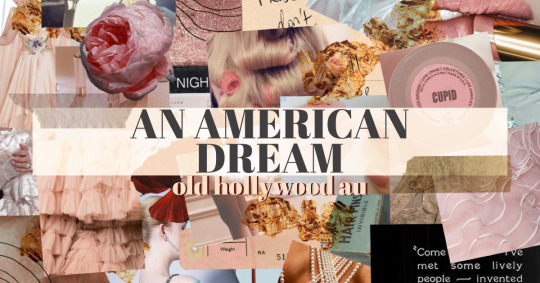
Old Hollywood AU- The Lucky One
Here is the first chapter/one shot of this AU that is a collab and crossover that @tolstoyamericanrevolution and I have been working on it since November! Please keep an open mind to character interpretation because this is AU territory and a lot of a character who isn't necessarily the focus of the AU can be warped for plot and time accuracy purposes over character accuracy! So let's get to it and happy last day of TURN WEEK 2021!!!!
Global media was in a buzz, Today was the Hollywood equivalent of a royal wedding. With all the bells and whistles belonging to the West Coast set. New & old money all united around the superficialities of silver screens and unions and dubious desert deals. All neatly swallowed down with a glass of wedding champagne- the same brand as Buckingham palace yet here it looked slightly gaudy, American.
The media was here to adore, this was a decade before your Grace Kelly’s and other exports could wear centuries-old crowns.
Here it was harsh, fiscal, temporary, silver over platinum yet it was royal, majestic, lovely- every bit worth the soundbite.
This was the American monarchy, all a blend of the finest breeds and worst mongrels.
Dressed up in such a lovely, splendid crowd that Philadelphia, New York, Houston, Los Angeles & Chicago would all be running titles.
“Adoring Crowds rewarded at last! The Marriage of America’s Sweetheart”
“Hollywood Royalty! Adrienne Fairfax & John Laurens tie the Knot”
“ Media Heiress & Tobacco Heir; Los Angeles’s Marriage of The Decade”
Those picking up the papers would all sigh the same thing; how lovely.
The crowd was lovely.
At least, she was sure it was. Adrienne Fairfax had not yet been seen by a single member of the crowd, anxiously sitting before a vanity in a wedding gown three times her size, wringing satin gloved hands until the gloves began to crease. Her hands shook with the same fear that was responsible for the turning of her stomach as she removed them.
Today was her wedding day and it was exactly as she had always dreamed. Every detail was perfect and precisely to her liking.
Every detail was impressive.
Every detail would impress them.
The crowd was lovely.
The crowd had cheered for her, applauding her on the engagement just as they did when she was on the movie screen. Adrienne had been just as shocked as them to hear of her engagement. She would certainly remember being proposed to at the ripe age of seventeen. She certainly would have remembered if the man who did so was twenty-three years old, making him five years her senior.
The crowd had buzzed with conversation, just as they did now, outside of the open windows that were meant to cool her down. The cool breeze in the mountains this time of year should have corrected the heat filling her face and chest as it billowed through the open windows of the room, carrying the sounds of society in with it.
Her wedding was exactly as she had always dreamed.
It was in the mountains, away from the pollution of the billboard lights and American mile cars. She could see the stars from here, the real ones, in the sky. Not the ones in the velvet curtains in the ballroom, or the ones on the tule that coated the tablecloth in the grand dining room of the house she had barely spent a night in since she was a very young girl. Not the ones taking their seats in a church to watch Adrienne make the most irreversibly horrible decision of her life.
The crowd was lovely.
She was sure it was, and she was grateful for them. Their own chatter drowned out the echoes of old ghosts that still haunted this house’s halls. Adrienne’s eyes fluttered down to the picture frame propped up on the vanity in her childhood bedroom. She had been watching it like the smiling couple in the photo would decide to leave their seats on the terrace and walk away.
It was impressive.
The woman had light-colored hair, and the man’s was some odd form of grey in the yellowing black and white photo. She wore the most beautiful gown of pearly ivory layers and lace, the very same gloves Adrienne had just pulled from her own clammy hands graced the woman’s hands, the tiara atop her head in the photo matching the one atop the pile of blonde curls that she had just arranged in the vanity mirror.
It was just as she had imagined it.
Adrienne had found her mother’s wedding planning book years ago, and she fell in love with it the moment she first laid her eyes upon the beautiful fair-haired woman, leaning happily into the man in a finely tailored tuxedo and a wide smile in his eyes with an odd grey color to his hair.
Adrienne had not stepped foot over the threshold of this impressive Georgian English Manor style house since the last time she was dressed head to toe in black.
Adrienne had not crossed the threshold since the day of their funeral when she crossed from the foyer to the stairs down the drive with her belongings in tow.
She had gone home with a family friend that her parents had entrusted with her care and upbringing. The Washingtons were more superficial people than her parents had been. Not to say that they consumed more, that much was about the same. Rather, they were more concerned about success than they ever were with her. Growing up with the Washingtons, Adrienne had so many nannies, nurses, and governesses she often forgot their names. Not that it was important really, none of them integrated with her more than they absolutely had to.
Martha Washington had been insistent that she was to be the only maternal figure to the young heiress. Which would have been perfectly alright if she did not despise Adrienne’s own mother so deeply, making her maternal affection very few and far between.
Today is her wedding day.
It was Martha that had opened the door without a word, simply raising her brow, impatient with the blonde girl before the vanity. Adrienne managed one last look in the mirror before rising from the small chair she had sat on, donning her gloves over the clamminess of her sweaty hands, and breathed.
She breathed carefully as Martha pulled the veil to cover her face.
In and out.
In and out and suddenly she could pretend she was not being made to act as a witness as George signed over all she was to gain upon her 18th birthday to a man named John Laurens. He had shown up to sign the papers himself, a courtesy to George, she was sure. He was to be her husband, or so she had been told.
He had not even looked at her.
He did not greet her when he came through the door, only George. He did not converse with her, only George. She could have gotten up, smacked him, and walked out of the room and he would still not have noticed her.
He was to be her husband and she had not met him but once before. She knew who he was, vaguely. He worked at the studio as an actor. He was the son of an influential South Carolina politician who had a family fortune in the tobacco trade. But she had only met John Laurens once before her wedding day was set for the day of her 18th birthday and not a single day later. A week after watching her life be signed away into his hands he had paid her a visit.
Another courtesy to George, she was sure.
He had arrived with no specific plan, and walked through the gardens with her, talking now to her for almost an hour straight. She had even tried placing both tea and whiskey before him to shut his ramblings, both attempts failing miserably as he continued on about himself. He visited for almost two hours and had not asked her a single thing about herself.
He was to be her husband and he did not know a thing about her.
They met four other times during the short engagement, most of which were public niceties, another courtesy to George. There was not a single newspaper, magazine, or television hour that did not wish to have some kind of word with her on the topic of her wedding. None of them dared to advise her, she had been out planning the very best in the country since her earliest teenage years. A popular anecdote she had heard more in the past few months than she had anything else in the rest of her life went as following:
The Pope had come to visit the re-elected Franklin Delano Roosevelt in the White House but found the most pleasant time in the company of the most eligible girl in America, all the way on the West Coast.
The crowd was lovely.
That is what George had told her with a peck of a kiss to her cheek before he took his seat. She would walk herself down the aisle.
The harp and violins played as the grand doors to the ballroom opened on her, exposing her to the crowd and their whispers. The ceremony looked stunning. It was just as she had imagined it when she was little.
She only now began to wish that she had imagined the man at the end of the aisle so that there might be at least something she could find fault with.
There were familiar faces among the crowd that she passed on her long and slow walk to the man at the other end of the grand room. The clicking echo of her heels on the floor being the only thing keeping her trembling legs on course, but even worse was searching as discreetly as possible for those familiar faces. Anything to not have to face the harsh reality of who— no, of what— waited for her at the end of the crowd.
Among the crowd, her eyes locked with another blonde-haired man and she begged herself not to look desperate. He saw her looking too, but he managed far more composure than Adrienne did. Of course he did.
He must be thrilled.
Adrienne had the thought before she could stop herself. John Andre was another executive at the studio alongside George. Before her engagement, there had been pressures from all around for the two of them to marry. It would be a fitting trade, they justified, the daughter of an executive to the wife of an executive. It was a natural transition.
Perhaps that is why he had not spoken out about her engagement and marriage being written into her contract. He stood there, pretending he was not looking at her in his black tailored tuxedo, hair done in the most fashionable way with a small wave curl to it. He pretended that she was not on a death march.
He pretended far better than her.
He had his vices, that much she knew, but he was respectful. He spoke with her, not just to her. She knew him. She knew him and even though she had never found him more than physically attractive she found herself wishing it was him at the end of the aisle, and not for the first time since her engagement.
Today was her wedding day.
In a few minutes, she won’t be engaged anymore.
In a few minutes, she would be married.
In a few minutes, she would be married to a man that did not know a single thing about her.
She would be married to a man in less than a few minutes, and suddenly Adrienne understood all those runaway brides, leaving their fiance’s at the altar. Her heart pounded, hammering in her chest as she composed herself with a warm indifference. She had been doing so well. Then she saw him.
John Andre was an executive at the studio with George. There was pressure from all around for them to get married.
It was a fair trade.
He remained silent for his own sake. One cannot be forced to marry a woman who already belongs to a husband of her own.
She would be married and he would remain a bachelor till the end of his days, just as he wanted, receiving pity for her engagement everywhere he looked, exempting him from the very idea of marriage. Exempting him from being held accountable for his vices.
He must be thrilled, signing her life away to a man who doesn’t know a single thing about her for his own peace of mind.
It was a fair trade.
He had played the game and played it well.
He had won. And it was fair.
This will all be over soon, and she could find solstice in the stars over the sleepy Manor estate, talking to a ghost from the lawn as if he never left her. He had never left her, calling her to look up and scour the sky for stars whenever she felt lonely.
He had called her “my star.”
She was his star, and soon it would all be over. She could disappear into the night and be with the stars, chatting with ghosts from a happier past.
It will all be over soon.
She was looking through the crowd for familiar faces.
She was doing so well. And then she saw him, in the doorway she had just come from, a man in a finely tailored tuxedo and a wide smile in his eyes with an odd grey color to his hair. “It will all be over soon.”
And she heard him from the other end of the aisle, loud and clear, as if he were right beside her, as he should be.
Executive’s daughter married,
Media magnet meets Southern industry
John Andre: Hollywood’s Most Wanted Bachelor Remains Unwed
It was easy to feel remorseful, heroically guilty when you had nothing at stake.
No real risk to gamble.
It was the prisoner that escaped the hanging and looked sympathetically to the damned, fingers crossed behind their back. That was John Andre on this fine nuptial day.
If it had been him standing at the end of the aisle, where another John stood, he would be less prone to sympathy and instead resentment. Resentment of having his wings clipped and arranged around him, in exchange for a slip of a girl whom he felt no connection with.
By no connection, he meant romantic or intimate or lustful- none of the trilogy of connections worth considering matrimony.
Instead, he felt an observer's connection, a connection of pity, of sympathy- lightly powdered amusement and a genuine kindness that came from recognizing another piece on the chessboard of the older generation.
You could have as much power or success as you wanted in this city, as an executive you would assume John had made it to the top, and yet you would always be a puppet on someone else’s string.
Ask any man and it would be a woman, a mafia deal, a boss, an older competitor, or simply the moths that floated around the sparkles of fame ready to consume you if you stepped out of line.
#lbl#luck be a lady#turn amc#turn: washington's spies#adrienne fairfax#john laurens#old Hollywood au#an American dream#turn week 2021#turn week#amrev#american revolution#turn fanfic
22 notes
·
View notes
Photo

The Second Mrs Cullano
As we all know, Esme Platt is not Carlisle Cullano’s first wife, nor is she his second - she is actually his third. But she is the love of his life, the reason for his breathing, and so when he marries for the second time, it’s clear that wives are nothing to soulmates.
Esme Platt enjoys the wedding of Carlisle Cullano and the Second Mrs Cullano.
Dedicated to my literal partner in this crime, @notquitetwilight, and to our collective projection onto cringe New Jersey mob show stereotypes. Special shoutout to @stregoni-benefici and @carlislesscarf.
Esme felt a soft kiss on her shoulder and smiled. Sun was pouring through the open windows of her bedroom and there was a soft breeze that lifted her hair. He was still here. He shouldn’t have been.
“Good morning,” he whispered against her skin. “You smell so good.”
Esme rolled onto her stomach and curled around her pillow with her smile broadening. “Don’t you have somewhere to be?”
“You kicking me out?”
“No. But I’ve got things to do, too, you know?”
Carlisle lay next to her and stroked her caramel hair, his face close to hers on her pillow. She cracked open an eye and watched him watch her. “Can I stay with you?” he whispered.
She shook her head. “Not for long. For breakfast, though, if you make it.”
“I don’t wanna leave this bed.”
“You’re gonna have to at some point, baby. You’ve got responsibilities today.”
“Tell me to stay, Esme. Tell me not to do it.” He ran a strong hand over her neck and gently wrapped it around her throat, fingers tilting her jaw to the side.
She laughed quietly, sleep making her mind hazy. “No. I want you to have a wife and a family. You’ve always wanted that, but I haven’t. I still want to be me for a while yet.”
“You wouldn’t stop being you just for being my wife.”
Esme took the hand around her throat and brought it up to kiss. Carlisle closed her eyes at the touch of her lips. “We’ve talked about this, for years. Decades. I can be your person, but I can’t be your wife. I won’t be anyone’s wife again.”
“I’m not anyone. Please, Esme. Marry me.”
She stretched her arms up and laughed. “Not today!” But she rolled over and wrapped her legs around him and pulled him against her, loving him as best she could in the soft sunrise.
After, they followed their usual routine of showering together and dressing. Since their days of teenage love they enjoyed the quiet of domesticity. Outside the walls of their homes wars raged on their streets but in her old house, in his sprawling estates, it was just them, and today was no different. He zipped her skirt and she buttoned his shirt and they walked arm in arm down the street for coffee and bagels. They took a booth at the back of the cafe, although it didn’t matter if anyone saw them - they had never been a secret. Besides, they both kept guns strapped to them and knives hidden in their jackets and coats.
Esme leaned back in her chair, blowing steam off the top of her coffee. “You’re sure about this one?”
Carlisle regarded her over his phone and considered the question. “Yeah. It’s gotta be someone, why not her?”
“It doesn’t have to be someone,” she reminded him gently. “You could go it alone. Well, as alone as you will ever be. You’ve always got me.”
“Yeah. But I want someone. I want a wife. And the wife I want doesn’t want me, so I gotta choose the next best thing. Besides, you know her family’s reputation, that’s nothing to turn my nose up at.”
“Ever the pragmatist.”
He gave her one of the smiles he saved just for her. “Aw, you hurt me, Es. I do like her. She’s got spirit, and she’s smart as hell. She likes the high life and she wants kids sooner rather than later, and… and she makes me laugh. She makes me feel wanted.”
“I think most of the east coast wants you,” Esme said quietly, avoiding his gaze. It wasn’t that she was jealous - how could she be, when he made her feel so adored all the time? - but it irritated her that this woman was able to give him what he wanted, and she couldn’t. One marriage to the wrong man had ruined the institution for her and now not even Carlisle could heal that wound. Yes, her first husband had died violently at her hand for his transgression, but that wasn’t the point. The transgression had occured in the first place. That was frightening.
“Don’t be angry, darling. You know it’s still you.” Carlisle reached over the table and stroked her hand and Esme felt safe again. She held his gaze and nodded slightly. “It’ll always be you. You’re mine, before anyone and everyone else.”
She smiled, her mood improved. He had always been happy to declare his feelings with her, and even now, on the morning of his wedding to another woman, in a nondescript coffee shop, he made her feel like the most adored woman. On the middle finger of her right hand she still wore the first expensive ring he had ever bought her, and it cost as much as her parents’ house. It was a gaudy thing, a thick diamond set on a band of smaller cut gems that they had chosen together the day after she killed Charles. It was Carlisle’s promise to her - that no matter who else came along, no matter what the world threw at them, they would love each other before anyone and anything else. He wore a similar ring she bought him on his little finger of his right hand. They never took their rings off. His first wife had hated it - understandably - but she had got her share in the divorce when Carlisle had refused to forsake Esme. She looked down at the ring and it sparkled. She’d had it cleaned for the wedding today especially.
“Are you sure me coming today is a good idea?” she asked after a long moment.
He squeezed the hand he held. “Yeah. I need you there.”
“She’ll be mad.”
“She’s always got something to be mad about. Besides, she knows the deal and you’re non-negotiable.”
“I don’t want to upset anyone on their wedding day, Carlisle.”
He shifted his chair around the table and leaned closer to her. “What about me? You wanna upset me on my wedding day?”
She bit her lip and grinned. “I never want to upset you.”
“Then be a good girl. Come for me.” He rested his hand on her thigh under the table and Esme glanced around the cafe. No one paid them any mind. “Look at me.”
She met her lover’s piercing gaze and bit her lip.
“You gonna come for me?”
She nodded and gasped quietly when he rewarded her with a kiss. Esme could taste the coffee on Carlisle’s lips. He wanted her, he needed her, and she would never let him down.
Esme’s cousin begrudgingly helped her get ready for the wedding. She said it was indecent for the mistress to turn up, let alone in a red silk dress barely held together by strands of diamonds across the back, but Esme smugly told her the groom had bought it for her especially, and who was she to refuse him? As a precaution she strapped her Colt Python to her thigh - it was an old machine, temperamental, but it made her feel powerful and she had a more reliable weapon in her clutch, as well as blades hidden in her shoes - and touched up her hair. Curls pinned to her head, diamonds dripping from her ears, and Carlisle’s dress draped across her, Esme felt more sensual than ever. When she sat in the pew at the wedding mass and thought of how the groom had sighed between her thighs mere hours before, she felt holy. She sat with his cousins a few rows back and even when the blushing bride strutted down the aisle, he couldn’t keep his eyes from Esme for long.
They were lucky to be able to have a Roman Catholic service as everyone knew that Carlisle’s first marriage had been valid, but enough money had been slipped to the dioceses to push through an annulment, and so in the eyes of the Church this was his first marriage. There was some humour in that. The familiar words were spoken, hymns and prayers recited, and after what felt like a lifetime, and no time at all, Carlisle was walking down the aisle with the new Mrs Cullano on his arm. Sadness twinged at Esme’s stomach. That could have been me. It should have been. He’s mine.
The reception was tolerable, enjoyable in its tackiness and extravagance. Everything was white and puffy and the hundreds of guests stuffed into the grand ballroom of the coastal hotel were drunk within the first course. It was how a Jersey wedding should have been, though, and Esme appreciated it for what it was. By the time the first dance came, she was lightly buzzed and enjoying catching up with the biggest names in east coast crime, many of whom were old family friends. Business people and politicians, state senators and property moguls joined them too, tying together the legitimate and illegitimate powers that kept the region affluent and fun, and most didn’t know where the legality ended and illegality started. By the time Esme snorted a line of cocaine from the chest of a mayor’s daughter she didn’t much care and the pair fell about laughing in the bathroom. As if called by the sound of Esme’s happiness, the moment was cut short by the sound of the bride herself outside.
“Lisa, can you fucking help me? This dress is a fucking nightmare, you gotta hold it up, okay?”
“You better go,” Esme advised the girl, no older than twenty-two by the looks of it, “before you meet Bridezilla up close and personal.”
The girl giggled and darted from the bathroom just as the bride scrambled her way through the door. The dress she had chosen was appropriately enormous, tight on top and blooming into an extravagant ball gown from the waist down, and Esme wasn’t surprised that she needed three bridesmaids to help her through the door.
“God, I’m dying to sit down properly-” she moaned over her shoulder before her eyes fell on Esme. Esme patted around her nose, watching her own pretty reflection in the mirror. “Oh. I didn’t know you were here.”
“I responded to your invitation,” Esme replied mildly. “Lovely dress.” She turned her attention to her lipstick and dotted a fresh coat on, pointedly ignoring the bride.
The second Mrs Cullano turned back to her bridesmaids and then looked at Esme, dithering between the two. There was a long pause before she turned to her entourage. “Stay outside. Make sure no one comes in, alright?” The bridesmaids made noises of agreement and the door swung shut, and then it was just Esme and Carlisle’s new wife.
After Mrs Cullano said nothing, Esme broke the silence. “You’ve organised a wonderful day. Are you enjoying yourself?”
Mrs Cullano’s eyes narrowed. “I’m not happy you’re here.”
“Oh?”
“I know why you’re here.”
“To see one of my dearest friends marry the woman he loves, of course.”
“Don’t play cute.”
Esme smiled sweetly. “You think I’m cute?”
“Cut the shit.”
She sighed and looked at the bride. “What’s on your mind, Mrs Cullano?”
“It’s real tacky you’re here, you know?”
“He wants me here. I came because he asked me to be here. I wouldn’t be here without an invitation.”
“I didn’t invite you.”
Esme pulled her invitation from her clutch and handed it to her. “Yes, you did.”
The bride threw it aside, angry. “Give up! I won! He doesn’t want you!”
Esme smiled at her sadly. There was nothing to say that could bring the bride any comfort. The truth was, Carlisle did want her. He wanted her more than anyone and anything, but that didn’t matter to this woman. This woman knew she had just pledged her life to a man who couldn’t love her completely. She was angry for it. “He’s my friend,” was all she could say.
“Get new friends.”
“I won’t stand in the way of your happiness, Mrs Cullano, or his. Above anything else, I love him and I want him to have the most wonderful life. I can’t give him the life he wants, but you can. Why would I jeopardize that?”
It was the wrong thing to say in hindsight. Esme knew that the moment the bride launched at her with murder in her eyes. Her clawing fingers reached out and she managed to get in one good scratch before Esme had her arms locked behind her and ready to pop from their joints. “Easy,” she whispered against Mrs Cullano’s ear. The acrylics on her fingers made her face sting, but the skin hadn’t been broken. “Calm down. Like you said, you won, you’re his wife. Don’t fight me for anything more, because you will lose, do you understand me?”
“Are you threatening me?” Mrs Cullano gasped.
Esme tightened her grip and the bride hissed. “Yes. Raise a hand to me again and Carlisle’s love for you will not save you. You want to see who he will really choose if it comes down to it? Because I do not have my doubts. Do you?”
Just as the bride’s whines rose in volume along with her pain, Esme let her go. She gripped under her elbow and held her upright to stop her from falling. “You got in a good scratch, I’ll give you that. But work on your attack and maybe you’ll take out an eye next time, alright? You’ll need protection if you’re going to love him.”
“Are you threatening me?” Mrs Cullano asked again.
There was no kindness left in Esme’s eyes. “Yes.”
The two women stared at each other for a long moment. The new bride broke first. Esme sniffed and checked her reflection before stalking out of the bathroom, not a hair out of place. She pulled on the diamond strap of her dress and was close to the ballroom door when Carlisle stepped out. His smile was so bright when he saw her and he reached for her hands. When he noticed the scratches across her face his forehead creased.
“What happened?” he asked, tender fingers touching the marks. Across the corridor there was a set of glass doors open to the terrace, and it was dark out there. There were a few wedding guests milling around but quick steps had the pair hidden in the gloom. Overhead, stars popped across the inky sky. With her arm in Carlisle’s, they found their way down garden paths and to the beach. No one saw them.
“Your wife doesn’t like me,” Esme told him, smiling. His face was barely visible in the darkness but his bright hair caught the light of the stars. Their walk eventually slowed as their shoes crunched on the sand.
“She did this?”
Esme nodded. “It’s alright, she deserved to get in a good swipe. It won’t happen again, though.”
“No, it won’t,” Carlisle replied angrily. “Who does she think she is?”
“The new Mrs Cullano, protecting the honour of her marriage,” Esme pointed out with a light laugh. “I’d do the same. I don’t mind, really. I understand her anger.”
“Esme,” he said, his voice softening. “How can I love someone who hurt you?”
“You’re the only one who can hurt me, Carlisle.” She wound an arm around the back of his shoulders and closed her eyes when he rested his forehead against hers.
“I’ll never hurt you.”
“I know.” And he never had. Not with a hand, not with a word. No one had ever loved anyone like Carlisle loved Esme, and she knew it. “You’re so good to me. What did I do to deserve you?”
Carlisle rested one hand at the small of her back and ran the fingers of his other hand up her spine. “Thank you for wearing this dress. You look beautiful.”
She smiled in the night. “Thank you for choosing it for me.”
“Gotta let the whole world see how wonderful my girl is.”
“Call me that again.”
“My girl?”
She hummed and began gently swaying, moving him to dance with her to the sound of the ocean. “You’re my person, you know?”
“Yeah, I know. And you’re my person. Always have been. Always will be.”
Carlisle’s soft kiss touched Esme’s cheek and she sighed in bliss. “I love you, Carlisle.”
“I love you, too, Esme. More than anything. Always.”
#the cullanos#ellie writes#notquitetwilight#remember how this started as shitposting#and now theres lore and emotions#anyway guys new blog coming soon who's pumped LMFAOOOO#carlesme#the literal MOST ooc carlesme you'll ever read#BUT ITS FUN AND KINDA SEXY SO#esme fucks carlisle on the morning of his wedding to someone else
84 notes
·
View notes
Text
Welcome to the Nightmare Game II - CH16
**This is an edited machine translation. For more information, please [click here]**
[<<< Previous Chapter | Table of Contents | Next Chapter >>>]
-----
Chapter 16: Journey (First Half) {cw: parent death}
Across the polar ice sheets and mountains and rivers, the aircraft landed in an oasis on the border of the Sea of Tranquility desert. If you continued on, you would enter the domain of the Dragon Ant Queen. This aircraft that didn’t have any loyalty markings could not enter. Her field hung over this desert, and outsiders had to walk through the desert to find the legendary valley and enter her underground kingdom.
Dozens of tribes, large and small, lived near the valley of the Underground Ant City. They lived in simple grass houses built of reeds and desert poplars, and lived a hard life tending sheep, but they had built luxurious tombs for generation after generation of Dragon Ant Queens.
During the demon invasion over 20 years ago, they survived under the protection of the Dragon Ant Queen. Although tribespeople were killed from time to time in the evil tide every month, they still stubbornly survived and had continued to this day.
The successive Dragon Ant Queens represented the neutral force between the humans and demons. She didn't make enemies with the Holy See, and sometimes even protected human beings, but her identity as a devil makes her position subtle and suspicious. Human beings once feared her, but when the human world was devastated by the wanton invasion of demons, the Underground Ant City she ruled became a land of sin where humans would survive. There, demons coexisted with human beings, and though they were hostile to each other, when the evil tide came every month, they were forced to unite to fight against this test of life and death.
The yellow sand covered the sky, the wind was roaring, and this withered land groaned and sang in despair.
The guard of the Valentines tribe who was on rotation narrowed his eyes. He saw a figure in the swirling yellow sand that was coming towards him. He suspected that he had mistaken the stone forest as a figure and he couldn't help blinking hard, trying to squeeze the sand that captivated his eyes aside. But when he opened his eyes again, the figure was just ahead.
He was wrapped in a white robe against the wind, and the robe was covered with traces of wind and sand. He pulled down his hood and showed a pair of blue eyes, just like the cloudless sky on a hot sunny day.
"Hey friend, where are you from?" asked the brown-skinned Valentine.
Every year, there were always many people who came to the Underground Ant City to seek the Queen’s asylum. When they arrived here, they were often already in a state of hardship, even having no provisions left, only hungry and cold. The kind-hearted people in the tribe would always take out their small amount of food and invite them to have a good meal, and then cheerily show them the way into the Underground Ant City.
The Valentine people shared everything they owned warmly, generously, and happily, even if they lived in this barren land and were poor and strained all their lives.
"I'm from Neverland." He was dusty, hoarse, and pale, but his eyes were firm.
The Valentine stood in awe: "You just crossed the desert? A few days ago, the high priest said that there was a huge storm coming. I was afraid that many people had died. Did you encounter it?"
The traveler nodded: "Lost the camel."
"It's just a camel, at least you haven't lost yourself. This is rare luck to have in the desert." The Valentine said enthusiastically, "Come rest with our tribe. Today is the Bonfire Festival; young girls will come out to dance, we’ll all gather and have fun together, and start again tomorrow morning. The Underground Ant City isn’t far away!"
"Thank you."
The lone traveler rested with the Valentine tribe, and the Valentine guard warmly invited him to have dinner in his home. When the traveler took out the precious spices he carried with him, the guard danced happily and called a dozen neighbors in one breath. They killed a sheep, the man set up a grill, and the woman drew water from the well. Finally, they tasted this delicious roast lamb together without any other fixings, and repeatedly praised the magic of spices. Even the traveler's eagle was given a piece of the delicious roast lamb. It was clever with language and praised the sumptuous dinner, which attracted Valentines’ laughter.
At night, the bonfire was lit in the middle of the village and the tribespeople kept adding firewood to make it burn more brightly. The flaming fire dyed the sky a brilliant red. The old people in the tribe played with rough instruments, while the men and women dressed up and danced around the bonfire. The young girls were shy and waited for the boys to invite them to dance or even propose marriage.
The annual Bonfire Festival was actually a grand collective wedding. The young people in this tribe had no complicated wedding ceremonies. They only needed to invite their favorite girls to dance in front of the bonfire, and take out gifts for their sweetheart after the dance. Once the other party accepted them, their wedding would be completed.
This barren land couldn't support grand weddings, but as long as lovers really love each other, the ceremony is not important.
The traveler looked at the lively dancing from a distance. After taking off his robe, his tall and straight body and handsome appearance could be seen. The girls from the Valentine tribe glanced at him frequently. One bold girl even took the initiative to invite him to dance. She wasn’t annoyed when she was rejected, but ran back happily holding her skirt and whispered to her companions.
The traveler had to sneak away and took his eagle to the stone forest outside the village. Here there was a wind-eroded hill with steep walls, full of wind-eroded boulders and wind-eroded columns. The eagle glided in the night sky while he jumped onto a wind-eroded column several meters high and sat on it, watching the tribe with their glowing bonfire from a distance. Music, laughter, applause, the excitement of this world echoed in this desert, which made people feel excited and eager to walk into bright joy and forget all their troubles and pains.
This excitement reminded travelers of the Twilight Township’s founding day celebrations. On that day, the whole Village of Twilight was also as lively as this. There was only the one day in a year when the sunset would be replaced by a bright starry sky. People would go out of their homes, walk through the streets and have fun, or enjoy fireworks rising from the sea or on the beach, blooming in a beautiful canopy.
On that day when he was still young, and only on that day, his mother would brace herself up from her sickbed, take him by the hand, and take to the streets to watch fireworks on the beach. He sang to her and she always smiled and touched his head to encourage him. Such memories made him sincerely happy.
But this little happiness didn't last forever. Mother's hand was thinner every year. The palm that once wrapped around his could no longer hold him. Instead, his could wrap around her hands—a pair of skinny hands.
Later, she finally couldn't even get out of the house, so on the founding day of each year he didn't go to the beach to watch fireworks, but stayed with her at home. Sometimes she was awake, but sometimes she was asleep. He sat on the floor beside her bed watching the sporadic fireworks from the window, quietly watching them as they bloomed and then extinguished, just like her.
He knew that she was going to leave him, and that there was nothing he could do. He could only pray day after day, asking God to slow down, slow down, don't take away his only relative just yet, don't leave him alone.
But she still left. That year, he was thirteen years old.
After her death, he was sent to the Holy See. Every year, on the Twilight Township’s founding day, he wanted to go back and see it, but he always missed it because of one thing or another. Until one year, he finally took the time to return to the Twilight Township.
But he didn't go to the beach to watch fireworks. He spent it with her at her tombstone.
On the way to the church’s graveyard, crowds flocked to the square and the beach. He walked in secluded alleys and avoided the crowds. Could that joy belong to him? He didn't know, he only felt lonely. For a moment, he even had such a confused thought: At this moment, is Father God watching over this lonely creature?
So he mused in his heart: Please turn to me and have mercy on me, because I am lonely and miserable. Please look after my hardships and sufferings, and forgive all my sins.
Fireworks flew and exploded in the sky. The colourful fireworks attracted screams and laughter from the crowd. He stood in front of her tombstone and looked up.
Every year was so lively, exactly the same as in his childhood memories, but he never had the luck to have a person to watch fireworks with him.
Yes, he did.
He had it.
—What God had prepared for those who loved him was what the eyes had never seen, the ears had never heard, and the heart had never thought of.
It was miraculous and inconceivable, which caused his heart to wander with an oath day and night, but before he could speak it, he was already silenced. Later, the miracle slept in the tree tomb, and the fallen flowers gradually covered his face, but it appeared again and again in his memory. He carefully held this memory and made it accompany him clearly every day.
It was just that he never dared to think about this oath again, because he couldn’t say it anymore. No one could say it anymore.
He also dreamed of him, and each time he lost this heart of his, but even if they met in such a nightmare, it was better than the many nights without dreams. He stayed up all night, accompanied by the bonfire until dawn.
This kind of love was happiness and pain.
It was passionate, but also quiet.
His mind was opened and he was grateful, even if he would willingly spend his whole life in turmoil.
He was grateful for everything in his life.
-----
Editor’s Notes: A small correction: in the earlier chapter where Qi Leren read Ning Zhou’s letter, I had it say “demon tide” rather than “evil tide”. This has now been changed.
-----
[<<< Previous Chapter | Table of Contents | Next Chapter >>>]
#Welcome to the Nightmare Game#欢迎来到噩梦游戏#danmei#I don't really know why I bother tagging these#Just routine I guess
27 notes
·
View notes
Text
Not Mine Pt2
Someone asked for a pt 2 so I hope you enjoy ofc :D
Not Mine
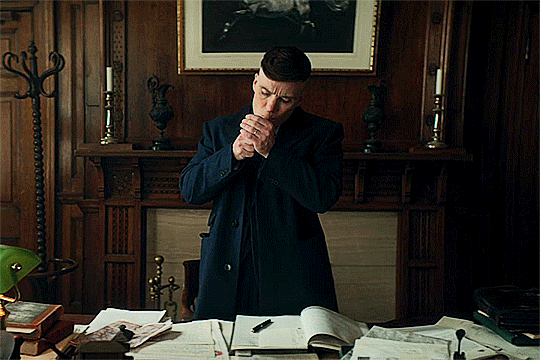
Tommy ended up marrying Grace and while the decision stung, (Y/N) understood the reasoning behind it. Since he was her only parent, no one could take her away but Grace could easily take Charlie and go back to Ireland and so Tommy stayed with Grace so that he could have his son.
Ever since the revelation of her adoption, tensions in the house had been high. Grace no longer kept her distaste for (Y/N) hidden, so (Y/N) and Tommy had decided that it was best for her to stay with Polly for a while.
Tommy made sure to visit her multiple times during the week, whether it was arriving early so that he could drive her to school, pick her up or stay late for dinner, he made sure he made time to see her.
When Grace was murdered, (Y/N) felt conflicted on her feelings on the matter. While she didn’t care for the woman and wasn’t particularly upset about her death, she knew that her father would be and that Charlie would have to grow up without his mother and at her funeral, as she held Charlie who she hadn’t seen in months in her arms, she silently promised to make sure the little boy lack any love or affection.
After events of where Charlie got kidnapped and the rest of her family being taken to jail and then the Italians coming to England to get revenge on her family, (YN) had totally forgotten about her biological parents but Tommy hadn’t.
After everything with Italians had ended, one afternoon Tommy had pulled her away from where she was playing with Charlie, much to the little boy’s displeasure. Charlie utterly adored (Y/N) and hated when she was away at school.
Her father had pulled her into one of the many rooms that Arrow House held and passed her a slip of paper with two names on them.
“What’s this?” She asked confused.
“Your birth parents” Tommy filled her in, “I also know where they live, in case you want to make a visit”
“Oh” (Y/N) stared at the piece of paper intensely, her mind racing.
“You don’t have to make a decision now, think about it” Tommy advised her.
“Okay.” (Y/N) nodded before she folded up the piece of paper and slipped it into the pocket of her cardigan, “Can I go back to Charlie?”
Tommy nodded and watched as she left the room, obviously in a much sadder mood. He wouldn’t admit it to anyone but he was afraid that if (Y/N) met her birth parents, she would leave him for them and it was one of biggest fears, he didn’t know what to do if she left him.
One week later, she had approached him while he was in his office and brought up the subject of her parents.
“Dad?”
“Hmm?”
“I want to meet them, my birth parents.” (Y/N) told him, “I deserve to know why they abandoned me.”
Tommy slowly nodded, he guessed that ever since she found out that she was adopted, she had been wondering why she had been left by the canal and she was right to deserve answers.
“Okay, we’ll go in a few days, how about that?”
“Thank you.” (Y/N) sent a grateful smile to her dad before she left his office.
A few days later and (Y/N) felt sick from the nerves and she couldn’t sit still if she wasn’t pacing the halls as she waited for her father, she was jiggling her leg up and down.
“You ready?” Tommy asked as he made his way towards her.
(Y/N) took a deep breath and nodded, “Yeah”
They had driven to a place that reminded (Y/N) Watery Lane, grey and dreary. Tommy’s fancy car had attracted stares as they drove through the streets before he stopped in front of one.
“28 Earl’s Street.” Tommy spoke, “Home to Camilla and Trevor Armstrong.”
(Y/N) eyed the house that had 28 on the front door as she tried to gather her courage.
“You ready?” She asked
“I’m the one who should be asking you that,” Tommy said instead of answering her question.
“I’m ready.”
“Yea?”
“I have to do this.”
Tommy watched his daughter for a few minutes before he sighed and got ready to leave the car.
He walked with (Y/N) just a few steps behind him to the house and knocked loudly on the door.
“Camilla Armstrong?” Tommy asked when a woman opened the door.
“Yes.” Camilla stared at them in confusion, “Who are you?”
(Y/N) took the opportunity and stepped away from where she was hiding behind her father and faced the woman, “I’m your daughter. The one you abandoned fourteen years ago.”
Camilla gaped at her in shock, her face turning pale. Her extended disappearance had worried her husband so he came to the door, wondering what the problem was.
“Darling? What’s the matter? Who are these people?”
“S-she uh--” Camilla harshly swallowed, “She says she’s our daughter.”
Trevor’s face turns pale as well.
“Mind if we talk?” Tommy asked.
Trevor and Camilla slowly nodded before they opened the door wider and motioned for them to come into their house. Camilla ran off to make tea while Trevor took them into their living room.
They sat in silence until Camilla came back with the tea that no one ended up touching.
“H-how did you find us?” Trevor asked
“I hired someone to find you. It took a few years but they managed to do it.” Tommy answered them.
(Y/N) was staring at them intensely, her eyes taking over their features, trying to match the ones on her face to theirs.
“You’ve grown up well.” Camilla looked at her with tears in her eyes, “So beautiful.”
“My father raised me well” (Y/N) motioned towards Tommy.
“I’m your father” Trevor spoke up
(Y/N) frowned at him, “No you’re not. You didn’t raise me, feed me or put the clothes on my back.”
“And we’re thankful” Camilla sent her husband a scathing look before she turned back to their guests.
(Y/N) had to gather a bit of courage before she asked a question that had been weighing on her for a while, “Why did you give me up?”
Camilla and Trevor exchanged a look before they answered, “Well...you were a girl.”
“Eh?” That had been the last thing (Y/N) and Tommy expected for an answer
“Girls aren’t worth much, we needed children to carry on the family name and represent our family well.”
“So you gave me up because I wouldn’t be able to do something as silly as continuing on the family name?” (Y/N) was in disbelief, “That’s horrific. How many children do you have?”
Trevor answered, “We have six sons. We couldn’t afford to waste money on a girl”
Tommy could help but scoff at them, he found them to be stupid.
“We loved you very much though!” Camilla cut in
“No, you didn’t” (Y/N) couldn’t believe what she was hearing, “You left me by the canal! That tells me you didn’t care whether I died or not, if you really loved me then you would have left me at a church or a hospital.”
“We’re sorry!” Camilla cried
“I don’t want your empty apologies” (Y/N) stood up, “Did you have any other daughters or was I the only one?”
“You were the only one.”
“Good.” (Y/N) glared at the couple in front of her, “You’re terrible people and I’m glad I was never raised by you.”
With that (Y/N) left the living room and their house, Tommy right behind her. As soon as she got into the car, she began to cry and Tommy tried his hardest to comfort her, he passed her his handkerchief and started to drive away, thinking that staying outside of their house wouldn’t help her.
He let her go through her emotions and thoughts by herself, giving her time and space to speak to him when she was ready.
“I know you think that I should have never met, especially since we now know what they’re like but I’m glad I did” (Y/N) spoke up, half an hour into their journey, “I’m glad I know what terrible people they are and now I will no longer stay up wondering about what if.”
“You don’t need them.”
“I know I don’t” (Y/N) sent him a smile, “I’ve got you, Charlie, Aunt Pol, Auntie Ada and all my uncles. You’re my family.”
#peaky blinders imagines#peaky blinders imagine#tommy shelby imagines#imagines#peaky blinder imagine#Peaky Blinders#tommy shelby x reader#x reader#shelby!reader#daughter!reader#thomas shelby imagine#thomas shelby x reader#thomas shelby#peaky blinder fanfic#fanfic
378 notes
·
View notes
Photo

{zión moreno, 21, trans woman, she/her/hers} || yazmín navarro montes is a mutant with the ability of hydrokinesis (water manipulation). they’ve been in new york for eight and a half years where they spend most of their time as student attending xavier’s/unwilling omega. when i think of them, i think of words and pictures carved into desks, a pool of water’s wobbly reflection, necklace chains tangled in hair, and fast footsteps following the sound of a schoolbell.
UNCLASSIFIED
SECRET
yazmín navarro montes was the apple of her parents’ eye. despite being the middle child of three children, she didn’t linger in the background or have to fight for attention. her mother and father always had plenty of time and love for her, no matter what. they let her express herself however she wanted. because of that, she would, soon enough, realize she was trans. her parents accepted her wholeheartedly, as did the rest of her family, embracing and supporting her. they even moved churches the moment the one they attended attempted to disapprove. their new and lifelong one would be loving and kind, and yazmín would see it as her second home for a long time.
unlike most kids, yaz didn’t bemoan going to church, praying, or all the time spent there that other children would say is ‘wasted’. she herself felt close to god, as if he smiled on her and her family. the cross her grandparents had given her on her fifth birthday almost never left her neck. her sister teased her for how much of a “kiss-ass” for god she could be, but it didn’t shake how yaz felt. when she was within the walls of the church, it was as if a wave of energy would fill her bones. it was magical.
schooling proved to be more of a challenge, as she found herself easily bored. that was until she got a taste for science, chemistry specifically. she dove head first in, eager to read, learn, and watch whatever she could get her hands on. there were more than a few times they had to air out the house when one of yaz’s experiments went awry. most of those incidents could be explained away easily, but there were one or two her parents always wondered about. it was as if yazmín would have access to chemicals or tools that she’d have no way to get. they’d soon find others who shared in their concerns.
much like any tween about to become a teen, yaz would have spouts of moodiness. she filed in behind her sister in one of those moods, irritated by everything and anything, even the surge of energy she got entering the church. as they sat down, the priest came down the aisle to bless them all with holy water. it was a routine he liked to do every first sunday of the month. yazmín rolled her eyes as he passed their row, unhappy her outfit would get stained. that was all it took. the water never touched her, standing still as her eyes met the ceiling, before sprinkling to the floor in front of her feet. she didn’t notice at all, nor did her family.
but the priest did.
he didn’t want to believe it. right before his eyes, the water meant to bless a devoted child of god had repelled itself from her. he even tried to bless her again, yet the same thing happened.
to yazmín, nothing had happened. it worried the priest even more. at first, he did nothing with this information, unsure of what to do. as time passed, more odd instances happened around her. she took her brother to the park, and the park’s sprinklers rose but no water came out. once they left, water exploded from each opening. her mother would notice she’d come home bone dry despite a spring shower outside. every once in awhile the faucets in the house would only run warm right away despite the winter biting at people’s heels outside.
it’s six months what the priest witnessed when he came to her parents. he explained his concerns, and they were distraught. mutants were becoming a more well known entity in the last decade, but many churches had found themselves distrusting. they thought, instead of a scientific explanation, the manifestation of powers was evidence of demons or the devil itself. people who showed signs of these abilities had to be saved for the sake of themselves and others.
when yazmín came home from school that day, she was met by all three of them and a priest she didn’t know. her sister was away at college and her brother had been sent to stay with their grandparents. it was an unsettling silence that would last for two years.
that evening yazmín went through her first exorcism. they didn’t explain why or what she had down. it scared her, despite how little they did. the way her parents looked at her, how the priest flinched under gaze, she couldn’t understand what she had done wrong. it took the third exorcism for her to find out what it was. holy water sprinkled on her, until it suddenly halted in the air. she stared at it, eyes wide, before turning her head and the droplets hit the exorcist right in the face.
“the hold the demon has on her grows stronger,” the man gravely spoke.
it finally dawned on her. she tried to defend herself, tell them she wasn’t doing it on purpose, that she hadn’t done it at all. she would know if she were possessed, and she wasn’t. she cried, shouted, but no one listened. none of it worked. her parents were desperate to save their daughter, and the priests wanted to save her soul.
the exorcisms continued, increasing in their length and intensity. days blurred together, prayers ringing in her ears and her hope for a light at the end of the tunnel growing smaller and smaller. her father would cry out, “please save my little girl! please bring her back!”
“i’m still here, papa,” yazmín sobbed. “i never left!” but after awhile, even that didn’t sound true.
somedays she’d fight back, although unintentional. her hands curling into fists would freeze the pipes, a glare could boil a drink, a missed kick would bring a wave of water over from their neighbor’s pool. each time they grew more convinced of her possession, while yazmín realized she wasn’t without options. she made a few attempts to run away, only to fail because she was only thirteen.
then, quite suddenly, that daily routine came to an end. it all started with the newest exorcist coming in, and wondering aloud if there was any saving her. her mother had gasped, and father looked ready to cry. he and the other priests went to another room, and came back with a new plan. they would take her out of this environment, to somewhere no demon could survive. it could take months, years to return, if she ever did. it was their last resort.
yazmín didn’t give her parents a chance to answer. “i’m not leaving my home!”
“now, young lady, that isn’t-”
“i didn’t do anything wrong!” her cry shook the house, the pool next door sloshed, and the dam holding back the river above the down cracked ever so slightly.
“baby, please--” her mother tried to calm her, but yaz shook her head, tears already on her face.
“i’m-” the sink heads burst off. “not-” cracks filled the area around the pool, “leaving.” every pipe in the house ruptured, breaking the drywall apart with the force of the water coming out.
a similar scene took place in other houses, backyards flooded other backyards, and the crack of the dam grew longer.
“she must be stopped!” the priest cried out, unsheathing a dagger from beneath his robes and headed toward yazmín, quickly. “or else she will take us all!”
there were screams and yells all around her. time slowed down. yaz watched each muscle of his body raise the dagger towards her, and she grabbed for anything to help her. water interlinks with her finger and forms a sharp knife of its own. his dagger dragged over a centimeter of her neck, and the pain woke her up. she used the weapon in hand and stabbed it through his body.
metal clattered to the floor with a thud of a body. everyone was staring at her. within moments, yaz passed out.
the next few months of her life would be hard to account for. the government had gotten involved, as did charles xavier. her meltdown had brought their town a lot of attention, along with questions. no one found out that she caused it. authorities wished to keep her with them, but charles had somehow convinced them to let her attend xavier’s. later, yaz would find it ironic her attempt to stay home would send her away anyways.
things were hard for awhile, but she grew accustomed to her new life. she even enjoyed it, being around people like her and free to use those powers without consequence. nearly a decade later, the year of exorcisms was becoming a distant memory. but the government hadn’t forgotten about her.
someone powerful enough to nearly sink an entire town at thirteen, who could surly do even worse now, was not easily filed away by those in charge. they had contacted professor xavier in the beginning stages of the omega project, then reached out to her. they offered her a deal: a complete wipe of her record in exchange for her participation. yazmín hated them for it. they made her an offer she couldn’t refuse, and she accepted it with gritted teeth.
now, yazmin is moved out of the comfort of xavier’s and lives in a cold compound with strangers she prefers to keep at arms length. her life is a whirlwind again, and she’s not sure when it’ll stop this time, if it ever will.
#c23intro#eyes like sinking ships on waters so inviting —「 appearance 」#like the oceans dancing with a storm —「 walkman 」#reaching out across the sea. —「 interactions 」#exorcism tw#murder tw
8 notes
·
View notes